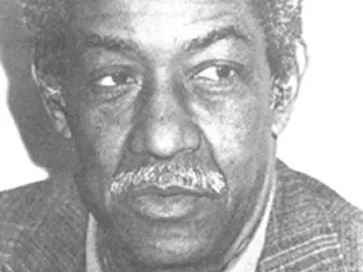Composers
Item set
- Title
- Composers
- Description
- Shining a Light Composers collection
Items
-
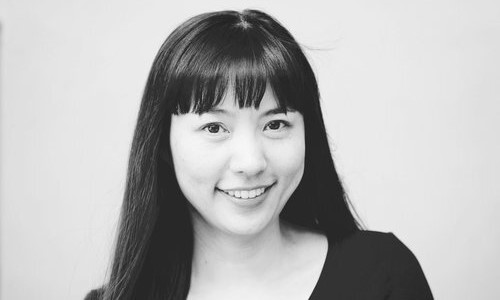 Juri Seo Juri Seo* (b. 1981) is a Korean-American composer and pianist based in Princeton, New Jersey. She seeks to write music that encompasses extreme contrast through compositions that are unified and fluid, yet complex. She merges many of the fascinating aspects of music from the past century—in particular its expanded timbral palette and unorthodox approach to structure—with a deep love of functional tonality, counterpoint, and classical form. With its fast-changing tempi and dynamics, her music explores the serious and the humorous, the lyrical and the violent, the tranquil and the obsessive. She hopes to create music that loves, that makes a positive change in the world—however small—through the people who are willing to listen. Her composition honors include a Guggenheim Fellowship, a Koussevitzky Commission from the Library of Congress, a Goddard Lieberson Fellowship and the Andrew Imbrie Award from the American Academy of Arts and Letters, the Kate Neal Kinley Memorial Fellowship, Copland House Residency Award, and the Otto Eckstein Fellowship from Tanglewood. She has received commissions from the Fromm Foundation, the Barlow Endowment, and the Tanglewood Music Center. Her portrait albums "Mostly Piano" and “Respiri” were released by Innova Recordings. She holds a D.M.A. (Dissertation: Jonathan Harvey's String Quartets, 2013) from the University of Illinois at Urbana-Champaign where she studied with Reynold Tharp. She has also attended the Accademia Nazionale di Santa Cecilia (Rome, corsi di perfezionamento with Ivan Fedele) and Yonsei University (Seoul, B.M.). She has been a composition fellow at the Tanglewood, Bang on a Can, and SoundSCAPE festivals, the Wellesley Composers Conference, and the Atlantic Center for the Arts. She is Associate Professor of Music at Princeton University. Juri lives in Lawrenceville, just outside of Princeton, with her husband, percussionist Mark Eichenberger and a little mutt named Roman. *Note on pronunciation: In North America, my name is pronounced [Jew-ri Suh].
Juri Seo Juri Seo* (b. 1981) is a Korean-American composer and pianist based in Princeton, New Jersey. She seeks to write music that encompasses extreme contrast through compositions that are unified and fluid, yet complex. She merges many of the fascinating aspects of music from the past century—in particular its expanded timbral palette and unorthodox approach to structure—with a deep love of functional tonality, counterpoint, and classical form. With its fast-changing tempi and dynamics, her music explores the serious and the humorous, the lyrical and the violent, the tranquil and the obsessive. She hopes to create music that loves, that makes a positive change in the world—however small—through the people who are willing to listen. Her composition honors include a Guggenheim Fellowship, a Koussevitzky Commission from the Library of Congress, a Goddard Lieberson Fellowship and the Andrew Imbrie Award from the American Academy of Arts and Letters, the Kate Neal Kinley Memorial Fellowship, Copland House Residency Award, and the Otto Eckstein Fellowship from Tanglewood. She has received commissions from the Fromm Foundation, the Barlow Endowment, and the Tanglewood Music Center. Her portrait albums "Mostly Piano" and “Respiri” were released by Innova Recordings. She holds a D.M.A. (Dissertation: Jonathan Harvey's String Quartets, 2013) from the University of Illinois at Urbana-Champaign where she studied with Reynold Tharp. She has also attended the Accademia Nazionale di Santa Cecilia (Rome, corsi di perfezionamento with Ivan Fedele) and Yonsei University (Seoul, B.M.). She has been a composition fellow at the Tanglewood, Bang on a Can, and SoundSCAPE festivals, the Wellesley Composers Conference, and the Atlantic Center for the Arts. She is Associate Professor of Music at Princeton University. Juri lives in Lawrenceville, just outside of Princeton, with her husband, percussionist Mark Eichenberger and a little mutt named Roman. *Note on pronunciation: In North America, my name is pronounced [Jew-ri Suh]. -
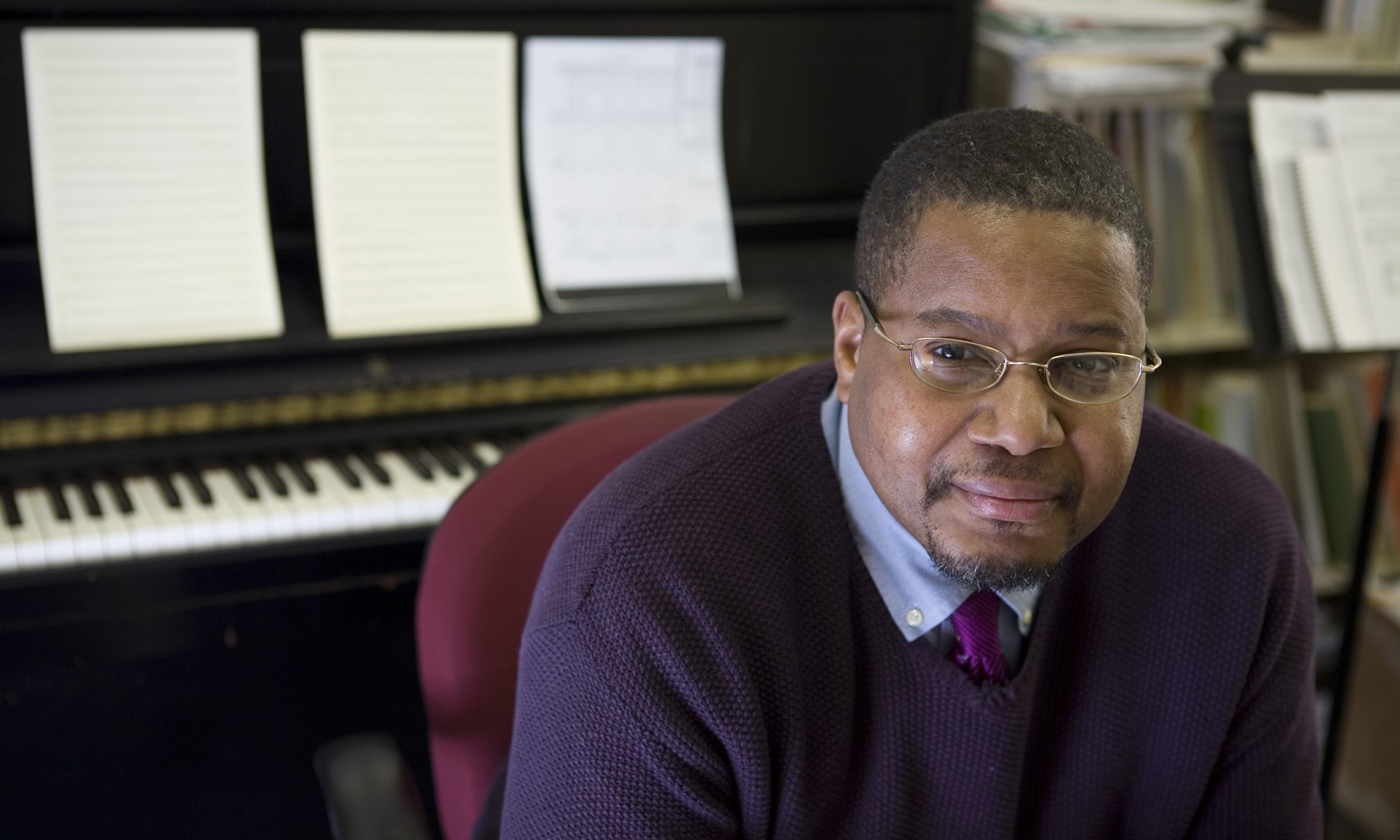 Trevor Weston Trevor Weston’s music has been called a “gently syncopated marriage of intellect and feeling.” (Detroit Free Press) Weston’s honors include the George Ladd Prix de Paris from the University of California, Berkeley, a Goddard Lieberson Fellowship from the American Academy of Arts and Letters, and residencies from the Virginia Center for the Creative Arts and the MacDowell Colony. Weston co-authored with Olly Wilson, chapter 5 in the Cambridge Companion to Duke Ellington, “Duke Ellington as a Cultural Icon” published by Cambridge University Press. Weston’s work, Juba for Strings won the 2019 Sonori/New Orleans Chamber Orchestra Composition Competition. Weston’s Flying Fish, co-commissioned by Carnegie Hall for its 125 Commission Project and the American Composers Orchestra, was described as having, “…episodes of hurtling energy, the music certainly suggested wondrous aquatic feats. I was especially affected, though, by an extended slower, quizzical episode with pensive strings and plaintive chords.” (New York Times). The Boston Landmarks Orchestra commissioned Griot Legacies for choir and orchestra, a work created with four innovative arrangements of African American Spirituals. Griot Legacies demonstrates Weston’s “knack for piquant harmonies, evocative textures, and effective vocal writing.” (Boston Globe) The Grammy-nominated Choir of Trinity Church Wall Street, under the direction of Julian Wachner, recorded Trevor Weston’s choral works. The Bang on a Can All-Stars premiered Weston’s composition Dig It, commissioned by the group for the Ecstatic Music Festival in NYC. A list of ensembles performing Trevor Weston’s compositions include Roomful of Teeth, The Boston Children’s Chorus, St. Thomas Church Fifth Avenue Choir, The Starling Chamber Orchestra, Mallarme Chamber Players, The Providence Singers, Chicago Sinfonietta, Seraphic Fire, The Tufts Chamber Chorus, Ensemble Pi, The Amernet String Quartet, The UC Berkeley Chamber Chorus, The Washington Chorus, Trilogy: An Opera Company, and The Manhattan Choral Ensemble. In addition to his creative work, Weston completed the re-orchestration of Florence Price’s Piano Concerto for the Center for Black Music Research in 2010. Dr. Weston’s musical education began at the prestigious St. Thomas Choir school in NYC at the age of ten. He received his B.A. from Tufts University and continued his studies at the University of California, Berkeley where he earned his M. A. and Ph. D. in Music Composition. His primary composition teachers were T. J. Anderson, Olly Wilson, Andrew Imbrie and Richard Felciano. Dr. Weston is currently Professor of Music at Drew University in Madison, NJ.
Trevor Weston Trevor Weston’s music has been called a “gently syncopated marriage of intellect and feeling.” (Detroit Free Press) Weston’s honors include the George Ladd Prix de Paris from the University of California, Berkeley, a Goddard Lieberson Fellowship from the American Academy of Arts and Letters, and residencies from the Virginia Center for the Creative Arts and the MacDowell Colony. Weston co-authored with Olly Wilson, chapter 5 in the Cambridge Companion to Duke Ellington, “Duke Ellington as a Cultural Icon” published by Cambridge University Press. Weston’s work, Juba for Strings won the 2019 Sonori/New Orleans Chamber Orchestra Composition Competition. Weston’s Flying Fish, co-commissioned by Carnegie Hall for its 125 Commission Project and the American Composers Orchestra, was described as having, “…episodes of hurtling energy, the music certainly suggested wondrous aquatic feats. I was especially affected, though, by an extended slower, quizzical episode with pensive strings and plaintive chords.” (New York Times). The Boston Landmarks Orchestra commissioned Griot Legacies for choir and orchestra, a work created with four innovative arrangements of African American Spirituals. Griot Legacies demonstrates Weston’s “knack for piquant harmonies, evocative textures, and effective vocal writing.” (Boston Globe) The Grammy-nominated Choir of Trinity Church Wall Street, under the direction of Julian Wachner, recorded Trevor Weston’s choral works. The Bang on a Can All-Stars premiered Weston’s composition Dig It, commissioned by the group for the Ecstatic Music Festival in NYC. A list of ensembles performing Trevor Weston’s compositions include Roomful of Teeth, The Boston Children’s Chorus, St. Thomas Church Fifth Avenue Choir, The Starling Chamber Orchestra, Mallarme Chamber Players, The Providence Singers, Chicago Sinfonietta, Seraphic Fire, The Tufts Chamber Chorus, Ensemble Pi, The Amernet String Quartet, The UC Berkeley Chamber Chorus, The Washington Chorus, Trilogy: An Opera Company, and The Manhattan Choral Ensemble. In addition to his creative work, Weston completed the re-orchestration of Florence Price’s Piano Concerto for the Center for Black Music Research in 2010. Dr. Weston’s musical education began at the prestigious St. Thomas Choir school in NYC at the age of ten. He received his B.A. from Tufts University and continued his studies at the University of California, Berkeley where he earned his M. A. and Ph. D. in Music Composition. His primary composition teachers were T. J. Anderson, Olly Wilson, Andrew Imbrie and Richard Felciano. Dr. Weston is currently Professor of Music at Drew University in Madison, NJ. -
 Nkeiru Okoye A composer with a gift for incorporating many influences and styles within her work, Nkeiru Okoye is perhaps best known for her opera, Harriet Tubman: When I Crossed that Line to Freedom, the orchestral work, Voices Shouting Out, which she composed as an artistic response to 9/11, and her suite, African Sketches, which has been performed by pianists around the globe. Profiled in both the Music of Black Composers Coloring Book and Routledge’s African American Music: An Introduction textbook, Dr. Okoye is also the inaugural recipient of the Florence Price Award for Composition. A recent New York Times article mentioned, “Okoye’s work would make a fitting grand opening for an opera company’s post-pandemic relaunch.” In March 2020, the State of Michigan issued a proclamation acknowledging Dr. Okoye’s “extraordinary contributions” to the history of Detroit, Michigan, for Black Bottom, a symphonic experience commissioned by the Detroit Symphony Orchestra, in celebration of the centennial season of Orchestra Hall. Her other recent works include Tales from the Briar Patch, a sung story, commissioned by The American Opera Project, and Charlotte Mecklenburg, commissioned by the Charlotte Symphony. Some of her upcoming compositions for the 2021-2022 season include Euba’s Dance, for cellist Matt Haimowitz, When young spring comes for pianist and NPR Host, Laura Downes, and a micro-opera, 600 Square Feet, for Cleveland Opera Theatre. Dr. Okoye is a board member of Composers Now!. She holds a BM in Composition from the Oberlin Conservatory of Music, and a PhD in Music Theory and Composition from Rutgers University.
Nkeiru Okoye A composer with a gift for incorporating many influences and styles within her work, Nkeiru Okoye is perhaps best known for her opera, Harriet Tubman: When I Crossed that Line to Freedom, the orchestral work, Voices Shouting Out, which she composed as an artistic response to 9/11, and her suite, African Sketches, which has been performed by pianists around the globe. Profiled in both the Music of Black Composers Coloring Book and Routledge’s African American Music: An Introduction textbook, Dr. Okoye is also the inaugural recipient of the Florence Price Award for Composition. A recent New York Times article mentioned, “Okoye’s work would make a fitting grand opening for an opera company’s post-pandemic relaunch.” In March 2020, the State of Michigan issued a proclamation acknowledging Dr. Okoye’s “extraordinary contributions” to the history of Detroit, Michigan, for Black Bottom, a symphonic experience commissioned by the Detroit Symphony Orchestra, in celebration of the centennial season of Orchestra Hall. Her other recent works include Tales from the Briar Patch, a sung story, commissioned by The American Opera Project, and Charlotte Mecklenburg, commissioned by the Charlotte Symphony. Some of her upcoming compositions for the 2021-2022 season include Euba’s Dance, for cellist Matt Haimowitz, When young spring comes for pianist and NPR Host, Laura Downes, and a micro-opera, 600 Square Feet, for Cleveland Opera Theatre. Dr. Okoye is a board member of Composers Now!. She holds a BM in Composition from the Oberlin Conservatory of Music, and a PhD in Music Theory and Composition from Rutgers University. -
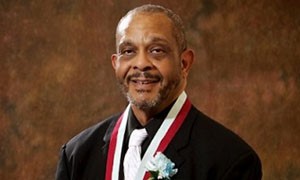 Wallace M. Cheatham Wallace McClain Cheatham (1945-2021) continued to grow as a musician, researcher, and teacher throughout his life. From the podium, he introduced major works of African-American composers to audiences in Wisconsin and Illinois. His compositions, which span a variety of genres, have been performed in national and international settings. Some of his scores have been published by Shawnee, Alfred, Master-Player Library, Oxford University Press, Southern Illinois University Press, and Jomar Press. Dr. Cheatham's research dealing with opera as it relates to the African-American experience has been published in internationally circulated journals of scholarship. His book, Dialogues On Opera and The African American Experience, is housed in libraries worldwide. Dr. Cheatham was a public school music teacher for more than three decades. He was a guest professor at Wisconsin's Cardinal Stritch University. He was called upon to be a piano accompanist for instrumentalists and singers, and a lecturer in national and international performance and professional venues. He is a subject of biographical record in Who's Who In The World, Who's Who In America, and Who's Who In American Education.
Wallace M. Cheatham Wallace McClain Cheatham (1945-2021) continued to grow as a musician, researcher, and teacher throughout his life. From the podium, he introduced major works of African-American composers to audiences in Wisconsin and Illinois. His compositions, which span a variety of genres, have been performed in national and international settings. Some of his scores have been published by Shawnee, Alfred, Master-Player Library, Oxford University Press, Southern Illinois University Press, and Jomar Press. Dr. Cheatham's research dealing with opera as it relates to the African-American experience has been published in internationally circulated journals of scholarship. His book, Dialogues On Opera and The African American Experience, is housed in libraries worldwide. Dr. Cheatham was a public school music teacher for more than three decades. He was a guest professor at Wisconsin's Cardinal Stritch University. He was called upon to be a piano accompanist for instrumentalists and singers, and a lecturer in national and international performance and professional venues. He is a subject of biographical record in Who's Who In The World, Who's Who In America, and Who's Who In American Education. -
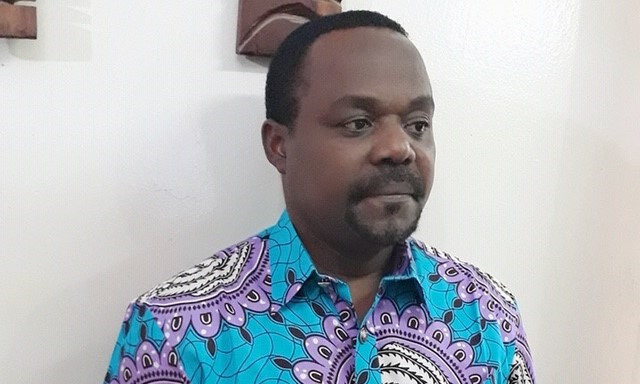 Christian Onyeji Christian Onyeji holds a Doctor of Music degree from the University of Pretoria, Republic of South Africa, a Master of Arts degree in composition, a Bachelor of Arts Degree in Music as well as a Diploma in Music Education from the University of Nigeria, Nsukka. A Professor of music at the Department of Music, University of Nigeria, Nsukka, Christian is an internationally recognized music composer, educator and scholar who specializes in Research-Composition, a compositional approach that applies ethnomusicological procedures in the composition of modern African art music that is a logical continuum of African traditional music. His numerous compositions for different media have been performed within and outside Nigeria. He is a researcher on African music as well as composes from the African stock. He has made contributions to modern African art music for symphony orchestra, drummistic piano style of modern compositions for the piano, choral compositions, solo voice and piano compositions as well as scholarly works in some leading journals. His Christmas Choral composition titled “N’ihi n’amuworo ayi otu nwa” published by Oxford University Press has been performed by different choirs of the world including the Mommon Tabernacle Choir, the world’s best choir. His publication of a collection of twenty Nigerian songs composed or arranged by him for solo voices have become valuable resource for voice students. He was the Festival Lecturer for the 2008 National Festival of Arts in Grahamstown, South Africa at the Art Music Performance part of the festival. He is a member of International Society of Music Education where he served on two Standing Committees; Pan African Society for Musical Arts Education; International Association of Audiovisual Archives; International Association of Music Libraries Archives and Documentation Centres, Association of Nigerian Musicologists and International Council for Traditional Music where he is a member of the Committee on Online Dialogues on Decolonization of Music. He was a member of the Academic Staff Union of Universities’ National Committee on Ethics and Grievances. He completed the Post Doctoral Research Fellowship at the School of Music, North-West University in South Africa in 2011, during which he pioneered the research on the indigenous music of the Batswana people of the North-West Province of South Africa. He serves as the Editor or a member of Editorial Board of Different Journals and reviews articles for international journals. He was awarded Global Lifetime Achievers International Gold Award (GLAIGA) in 2012 in a Grand Ceremony held in Accra, Ghana, by Nigerian Top Leaders International Magazine. He was also given the Outstanding Vocational Service Award in 2014 by Rotary Club, Nsukka. He presented the 102nd Inaugural Lecture of the University of Nigeria titled “Composing Art Music from Indigenous African Musical paradigms”. He was the Dean of Faculty of Arts, University of Nigeria, Nsukka from 2016 to 2018 after having served as Head of Department of Music University of Nigeria and University of Uyo as well the Associate Dean of Faculty of Arts and the School of Postgraduate Studies, University of Nigeria, Nsukka, Enugu State.
Christian Onyeji Christian Onyeji holds a Doctor of Music degree from the University of Pretoria, Republic of South Africa, a Master of Arts degree in composition, a Bachelor of Arts Degree in Music as well as a Diploma in Music Education from the University of Nigeria, Nsukka. A Professor of music at the Department of Music, University of Nigeria, Nsukka, Christian is an internationally recognized music composer, educator and scholar who specializes in Research-Composition, a compositional approach that applies ethnomusicological procedures in the composition of modern African art music that is a logical continuum of African traditional music. His numerous compositions for different media have been performed within and outside Nigeria. He is a researcher on African music as well as composes from the African stock. He has made contributions to modern African art music for symphony orchestra, drummistic piano style of modern compositions for the piano, choral compositions, solo voice and piano compositions as well as scholarly works in some leading journals. His Christmas Choral composition titled “N’ihi n’amuworo ayi otu nwa” published by Oxford University Press has been performed by different choirs of the world including the Mommon Tabernacle Choir, the world’s best choir. His publication of a collection of twenty Nigerian songs composed or arranged by him for solo voices have become valuable resource for voice students. He was the Festival Lecturer for the 2008 National Festival of Arts in Grahamstown, South Africa at the Art Music Performance part of the festival. He is a member of International Society of Music Education where he served on two Standing Committees; Pan African Society for Musical Arts Education; International Association of Audiovisual Archives; International Association of Music Libraries Archives and Documentation Centres, Association of Nigerian Musicologists and International Council for Traditional Music where he is a member of the Committee on Online Dialogues on Decolonization of Music. He was a member of the Academic Staff Union of Universities’ National Committee on Ethics and Grievances. He completed the Post Doctoral Research Fellowship at the School of Music, North-West University in South Africa in 2011, during which he pioneered the research on the indigenous music of the Batswana people of the North-West Province of South Africa. He serves as the Editor or a member of Editorial Board of Different Journals and reviews articles for international journals. He was awarded Global Lifetime Achievers International Gold Award (GLAIGA) in 2012 in a Grand Ceremony held in Accra, Ghana, by Nigerian Top Leaders International Magazine. He was also given the Outstanding Vocational Service Award in 2014 by Rotary Club, Nsukka. He presented the 102nd Inaugural Lecture of the University of Nigeria titled “Composing Art Music from Indigenous African Musical paradigms”. He was the Dean of Faculty of Arts, University of Nigeria, Nsukka from 2016 to 2018 after having served as Head of Department of Music University of Nigeria and University of Uyo as well the Associate Dean of Faculty of Arts and the School of Postgraduate Studies, University of Nigeria, Nsukka, Enugu State. -
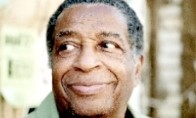 Ed Bland Considered by some Hip-Hoppers to be the great grandfather of Hip-Hop, because of the confrontational quality of his musical film work, Ed Bland has left his mark in several fields. In concert music, Bland's "Piece For Chamber Orchestra" (1979) was called, "An amazing tour de force in terms of relentless energy and build up of tension...a fascinating strong piece," by Gunther Schuller, American composer/conductor/author; and "Original and Fresh," by Bruce Creditor of the Boston Symphony Orchestra. Bland's synthesis of three canons of music, Western, Jazz and West African Drumming, made it possible for him to work as composer, producer, arranger, orchestrator in the recording, and film industries. Among those sessions was one using Jimi Hendrix in his early days.
Ed Bland Considered by some Hip-Hoppers to be the great grandfather of Hip-Hop, because of the confrontational quality of his musical film work, Ed Bland has left his mark in several fields. In concert music, Bland's "Piece For Chamber Orchestra" (1979) was called, "An amazing tour de force in terms of relentless energy and build up of tension...a fascinating strong piece," by Gunther Schuller, American composer/conductor/author; and "Original and Fresh," by Bruce Creditor of the Boston Symphony Orchestra. Bland's synthesis of three canons of music, Western, Jazz and West African Drumming, made it possible for him to work as composer, producer, arranger, orchestrator in the recording, and film industries. Among those sessions was one using Jimi Hendrix in his early days. -
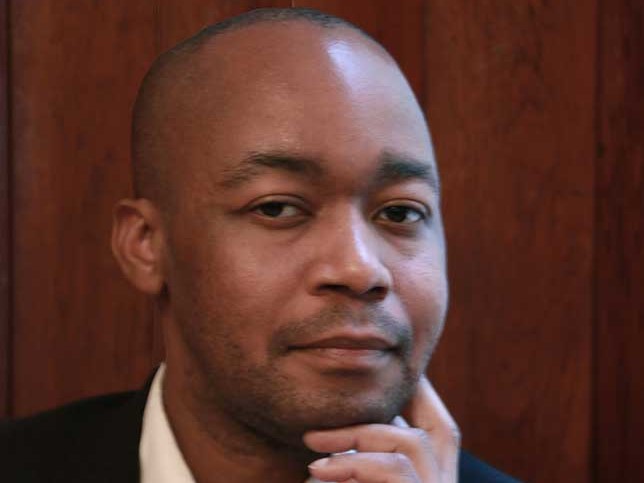 Bongani Ndodana-Breen Bongani Ndodana-Breen has written a wide range of music encompassing symphonic work and opera. According to The New York Times his “delicately made music – airy, spacious, terribly complex but never convoluted – has a lot to teach the Western wizards of metric modulation and layered rhythms about grace and balance.” He has received commissions from Wigmore Hall, Vancouver Recital Society, Madam Walker Theatre, Hong Kong Arts Festival, Luminato Festival and Haydn Festival. He is the composer of Winnie, The Opera based on the life of Winnie Mandela and Harmonia Ubuntu commissioned for and performed by the Minnesota Orchestra. Dr. Ndodana-Breen holds a PhD in Composition from Rhodes University. He was awarded the Standard Bank Young Artist Award in 1998 and was one of the Mail & Guardian 200 Young South Africans of 2011.
Bongani Ndodana-Breen Bongani Ndodana-Breen has written a wide range of music encompassing symphonic work and opera. According to The New York Times his “delicately made music – airy, spacious, terribly complex but never convoluted – has a lot to teach the Western wizards of metric modulation and layered rhythms about grace and balance.” He has received commissions from Wigmore Hall, Vancouver Recital Society, Madam Walker Theatre, Hong Kong Arts Festival, Luminato Festival and Haydn Festival. He is the composer of Winnie, The Opera based on the life of Winnie Mandela and Harmonia Ubuntu commissioned for and performed by the Minnesota Orchestra. Dr. Ndodana-Breen holds a PhD in Composition from Rhodes University. He was awarded the Standard Bank Young Artist Award in 1998 and was one of the Mail & Guardian 200 Young South Africans of 2011. -
 Ali Osman Alhaj Sudanese composer Ali Osman Alhaj has been a resident of Egypt since 1978. He started his musical education at the Cairo Conservatoire secondary school. Graduating with distinction in 1986, he studied composition with professor Gamal Abdel-Rahim and considered himself one of his disciples. He continued his post-graduate studies with professor Awatif Abdel-Karim, who was also his supervisor for his research titled “Rhythmic Patterns in East and West Sudan and Their Role in Distinguishing the Music of These Regions.” He was granted his M.A. in 1990. Some of his works were performed in Cairo at the Opera House, American University, and the cultural centers, and abroad in Germany, Austria, and England. In July 2000, he was granted a four month scholarship as composer in residence by Prohelvetia in Switzerland.
Ali Osman Alhaj Sudanese composer Ali Osman Alhaj has been a resident of Egypt since 1978. He started his musical education at the Cairo Conservatoire secondary school. Graduating with distinction in 1986, he studied composition with professor Gamal Abdel-Rahim and considered himself one of his disciples. He continued his post-graduate studies with professor Awatif Abdel-Karim, who was also his supervisor for his research titled “Rhythmic Patterns in East and West Sudan and Their Role in Distinguishing the Music of These Regions.” He was granted his M.A. in 1990. Some of his works were performed in Cairo at the Opera House, American University, and the cultural centers, and abroad in Germany, Austria, and England. In July 2000, he was granted a four month scholarship as composer in residence by Prohelvetia in Switzerland. -
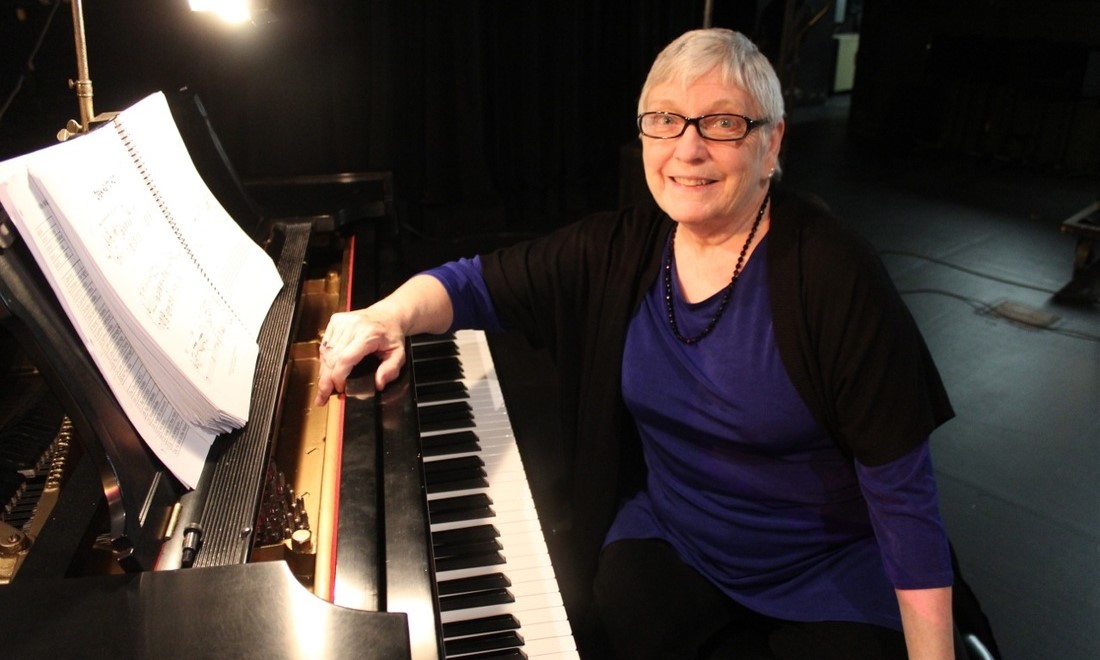 Barbara York Barbara York (b. 1949, Winnipeg, Canada) has been working in both Canada and the U.S. for over 45 years as a concert accompanist, choral and theatrical music director and composer. Her score and lyrics for the Canadian musical Colette won a Dora Mavor Moore Award (Canada’s version of a Tony) in 1981. She has received commissions from two Canadian symphony orchestras (Mississauga and Saskatoon), the Boise State University Symphonic Winds and the Boise State Symphony Orchestra, plus numerous private groups and soloists in both the US and Canada. She has presented compositions at three World Saxophone Congresses and at the 2003 International Double Reed Symposium. Her 50-minute scripted, children’s piece, A Butterfly in Time was nominated for a Canadian “Juno Award” for recordings in 2006 and is available through Amazon.com and elsewhere on the Children’s Group label. Her first tuba piece, Sea Dreams, was on the required repertoire list for the International Tuba Euphonium Association’s 2004 Young Artists Competition in Budapest. In 2006, Barbara, won the Harvey Phillips Award for Euphonium in Chamber Music at the International Tuba Euphonium Congress. Her Concerto for Tuba and Orchestra was recorded by Tim Buzbee with the Iceland Symphony Orchestra and is available internationally through Albany Records. As an accompanist, Barbara plays regularly at school, university and professional concert venues throughout the United States and Canada, has recorded for CBC Radio and has premiered numerous works for other composers at International congresses. Barbara lives in Pittsburg, KS where she works part-time as a staff accompanist at Pittsburg State University.
Barbara York Barbara York (b. 1949, Winnipeg, Canada) has been working in both Canada and the U.S. for over 45 years as a concert accompanist, choral and theatrical music director and composer. Her score and lyrics for the Canadian musical Colette won a Dora Mavor Moore Award (Canada’s version of a Tony) in 1981. She has received commissions from two Canadian symphony orchestras (Mississauga and Saskatoon), the Boise State University Symphonic Winds and the Boise State Symphony Orchestra, plus numerous private groups and soloists in both the US and Canada. She has presented compositions at three World Saxophone Congresses and at the 2003 International Double Reed Symposium. Her 50-minute scripted, children’s piece, A Butterfly in Time was nominated for a Canadian “Juno Award” for recordings in 2006 and is available through Amazon.com and elsewhere on the Children’s Group label. Her first tuba piece, Sea Dreams, was on the required repertoire list for the International Tuba Euphonium Association’s 2004 Young Artists Competition in Budapest. In 2006, Barbara, won the Harvey Phillips Award for Euphonium in Chamber Music at the International Tuba Euphonium Congress. Her Concerto for Tuba and Orchestra was recorded by Tim Buzbee with the Iceland Symphony Orchestra and is available internationally through Albany Records. As an accompanist, Barbara plays regularly at school, university and professional concert venues throughout the United States and Canada, has recorded for CBC Radio and has premiered numerous works for other composers at International congresses. Barbara lives in Pittsburg, KS where she works part-time as a staff accompanist at Pittsburg State University. -
 Joel Thompson Joel Thompson (b.1988) is an Atlanta-based composer, conductor, pianist, and educator, best known for the choral work, Seven Last Words of the Unarmed, which was premiered November 2015 by the University of Michigan Men’s Glee Club and Dr. Eugene Rogers and won the 2018 American Prize for Choral Composition. His pieces have been performed by the Atlanta Symphony Orchestra, Tallahassee Symphony Orchestra, Atlanta Master Chorale, Los Angeles Master Chorale, EXIGENCE, and the San Francisco Gay Men’s Chorus. Currently a student at the Yale School of Music, Thompson was also a 2017 post-graduate fellow in Arizona State University’s Ensemble Lab/Projecting All Voices Initiative and a composition fellow at the 2017 Aspen Music Festival and School, where he studied with composers Stephen Hartke and Christopher Theofanidis and won the 2017 Hermitage Prize. Thompson taught at Holy Innocents’ Episcopal School in Atlanta 2015-2017, and also served as Director of Choral Studies and Assistant Professor of Music at Andrew College 2013-2015. Thompson is a proud Emory alum, graduating with a B.A. in Music in 2010, and an M.M. in Choral Conducting in 2013.
Joel Thompson Joel Thompson (b.1988) is an Atlanta-based composer, conductor, pianist, and educator, best known for the choral work, Seven Last Words of the Unarmed, which was premiered November 2015 by the University of Michigan Men’s Glee Club and Dr. Eugene Rogers and won the 2018 American Prize for Choral Composition. His pieces have been performed by the Atlanta Symphony Orchestra, Tallahassee Symphony Orchestra, Atlanta Master Chorale, Los Angeles Master Chorale, EXIGENCE, and the San Francisco Gay Men’s Chorus. Currently a student at the Yale School of Music, Thompson was also a 2017 post-graduate fellow in Arizona State University’s Ensemble Lab/Projecting All Voices Initiative and a composition fellow at the 2017 Aspen Music Festival and School, where he studied with composers Stephen Hartke and Christopher Theofanidis and won the 2017 Hermitage Prize. Thompson taught at Holy Innocents’ Episcopal School in Atlanta 2015-2017, and also served as Director of Choral Studies and Assistant Professor of Music at Andrew College 2013-2015. Thompson is a proud Emory alum, graduating with a B.A. in Music in 2010, and an M.M. in Choral Conducting in 2013. -
 Mario Lavista Born in Mexico City in 1943, Mario Lavista began piano studies as a child and enrolled at the Conservatorio Nacional de Musica in 1963 under the guidance of Carlos Chavez, Hector Quintanar and Rodolfo Halffter. He studied at the Schola Cantorum in Paris (1967-1969), where he also attended courses given by Henri Pousseur, Nadia Boulanger, Christoph Caskel and Karlheinz Stockhausen. Upon his return to Mexico he founded Quanta, a collective improvisation group. In 1972, he worked at the electronic music studio of radio and television in Tokyo, Japan. He has worked on interdisciplinary projects, such as Jaula (1976), and in the creation of multiple scores for films produced by Nicolas Echevarria. Around 1980, he explored extended techniques of traditional instruments in collaboration with performers Marielena Arizpe (flutist), Bertram Turetzky (bassist), Leonora Saavedra (oboist) and El Cuarteto Latinoamericano (strings), in the compositions Triptico, Dusk, Marsias and Reflejos de la noche, respectively. In 1982, he founded Pauta, one of the most important music journals in Latin America, and has served as its chief editor ever since. As a writer, he has produced many essays, most of which are collected in Textos en torno a la musica. In 1987. he received a Guggenheim Fellowship for his first and only opera Aura, based on the short story by Carlos Fuentes. He has received many awards, such as the Premio Nacional de Ciencias y Artes and the Medalla Mozart. Since 1998, Lavista has been a member of the prestigious EI Colegio Nacional. He has taught in Mexico and abroad, especially in North American institutions, including the University of Chicago, Cornell University, the University of California San Diego, Indiana University and McGill University. His works are frequently performed by some of the most distinguished chamber and orchestral groups. Mario Lavista's music is published by Ediciones Mexicanas De Musica, A.C., Mexico City. Peermusic Classical is sole agent outside of Mexico.
Mario Lavista Born in Mexico City in 1943, Mario Lavista began piano studies as a child and enrolled at the Conservatorio Nacional de Musica in 1963 under the guidance of Carlos Chavez, Hector Quintanar and Rodolfo Halffter. He studied at the Schola Cantorum in Paris (1967-1969), where he also attended courses given by Henri Pousseur, Nadia Boulanger, Christoph Caskel and Karlheinz Stockhausen. Upon his return to Mexico he founded Quanta, a collective improvisation group. In 1972, he worked at the electronic music studio of radio and television in Tokyo, Japan. He has worked on interdisciplinary projects, such as Jaula (1976), and in the creation of multiple scores for films produced by Nicolas Echevarria. Around 1980, he explored extended techniques of traditional instruments in collaboration with performers Marielena Arizpe (flutist), Bertram Turetzky (bassist), Leonora Saavedra (oboist) and El Cuarteto Latinoamericano (strings), in the compositions Triptico, Dusk, Marsias and Reflejos de la noche, respectively. In 1982, he founded Pauta, one of the most important music journals in Latin America, and has served as its chief editor ever since. As a writer, he has produced many essays, most of which are collected in Textos en torno a la musica. In 1987. he received a Guggenheim Fellowship for his first and only opera Aura, based on the short story by Carlos Fuentes. He has received many awards, such as the Premio Nacional de Ciencias y Artes and the Medalla Mozart. Since 1998, Lavista has been a member of the prestigious EI Colegio Nacional. He has taught in Mexico and abroad, especially in North American institutions, including the University of Chicago, Cornell University, the University of California San Diego, Indiana University and McGill University. His works are frequently performed by some of the most distinguished chamber and orchestral groups. Mario Lavista's music is published by Ediciones Mexicanas De Musica, A.C., Mexico City. Peermusic Classical is sole agent outside of Mexico. -
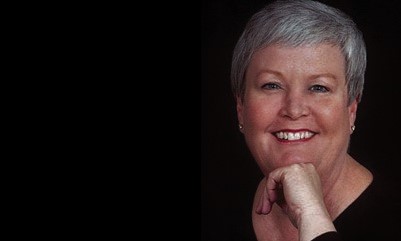 Vicki Tucker Courtney Vicki Tucker Courtney was born to play the piano. While the other four-year-olds in her Dallas neighborhood were learning to ride their tricycles, Vicki was taking piano lessons. Vicki's first piano teacher regularly entered her in the Van Katwijk Piano Contests. It was this early exposure to the world of competitive piano that led to an opportunity to study under Paul van Katwijk, himself, a successful composer and the conductor of the Dallas Symphony. While in high school, Vicki's education in musical theory and improvisation opened up new possibilities. With confidence and determination, Vicki embarked on a journey to develop herself as a composer and arranger. No one worked harder than Vicki as she played for every chorus and choral production the school offered, sometimes performing her own compositions and arrangements. Immediately after high school, Vicki was hired as Director of Music for the Youth and Children's Choirs at a local church while studying Piano Performance at North Texas University. Regrettably, the call of corporate America lured Vicki away from her musical pursuits. Many years went by until she was asked to perform at a memorial concert for a previous mentor, which lead Vicki back to her roots in music and her God-given talent. It was time to return to the piano and share with others the joy and healing that beautiful music can affect. Vicki was able to regain the skills and abilities needed to attain a professional church staff position. In 2002, Vicki was apprenticing with Mark Hayes, renowned for sacred and secular choral music and piano arrangements. By May of 2004, Vicki had received her first published choral arrangement and by the same month in 2009, she had acquired over 100 published titles. As a member of ASCAP and ACDA, Vicki currently writes full time while giving private piano lessons. Her talents are still in demand as she is routinely invited to play church services and choral concerts.
Vicki Tucker Courtney Vicki Tucker Courtney was born to play the piano. While the other four-year-olds in her Dallas neighborhood were learning to ride their tricycles, Vicki was taking piano lessons. Vicki's first piano teacher regularly entered her in the Van Katwijk Piano Contests. It was this early exposure to the world of competitive piano that led to an opportunity to study under Paul van Katwijk, himself, a successful composer and the conductor of the Dallas Symphony. While in high school, Vicki's education in musical theory and improvisation opened up new possibilities. With confidence and determination, Vicki embarked on a journey to develop herself as a composer and arranger. No one worked harder than Vicki as she played for every chorus and choral production the school offered, sometimes performing her own compositions and arrangements. Immediately after high school, Vicki was hired as Director of Music for the Youth and Children's Choirs at a local church while studying Piano Performance at North Texas University. Regrettably, the call of corporate America lured Vicki away from her musical pursuits. Many years went by until she was asked to perform at a memorial concert for a previous mentor, which lead Vicki back to her roots in music and her God-given talent. It was time to return to the piano and share with others the joy and healing that beautiful music can affect. Vicki was able to regain the skills and abilities needed to attain a professional church staff position. In 2002, Vicki was apprenticing with Mark Hayes, renowned for sacred and secular choral music and piano arrangements. By May of 2004, Vicki had received her first published choral arrangement and by the same month in 2009, she had acquired over 100 published titles. As a member of ASCAP and ACDA, Vicki currently writes full time while giving private piano lessons. Her talents are still in demand as she is routinely invited to play church services and choral concerts. -
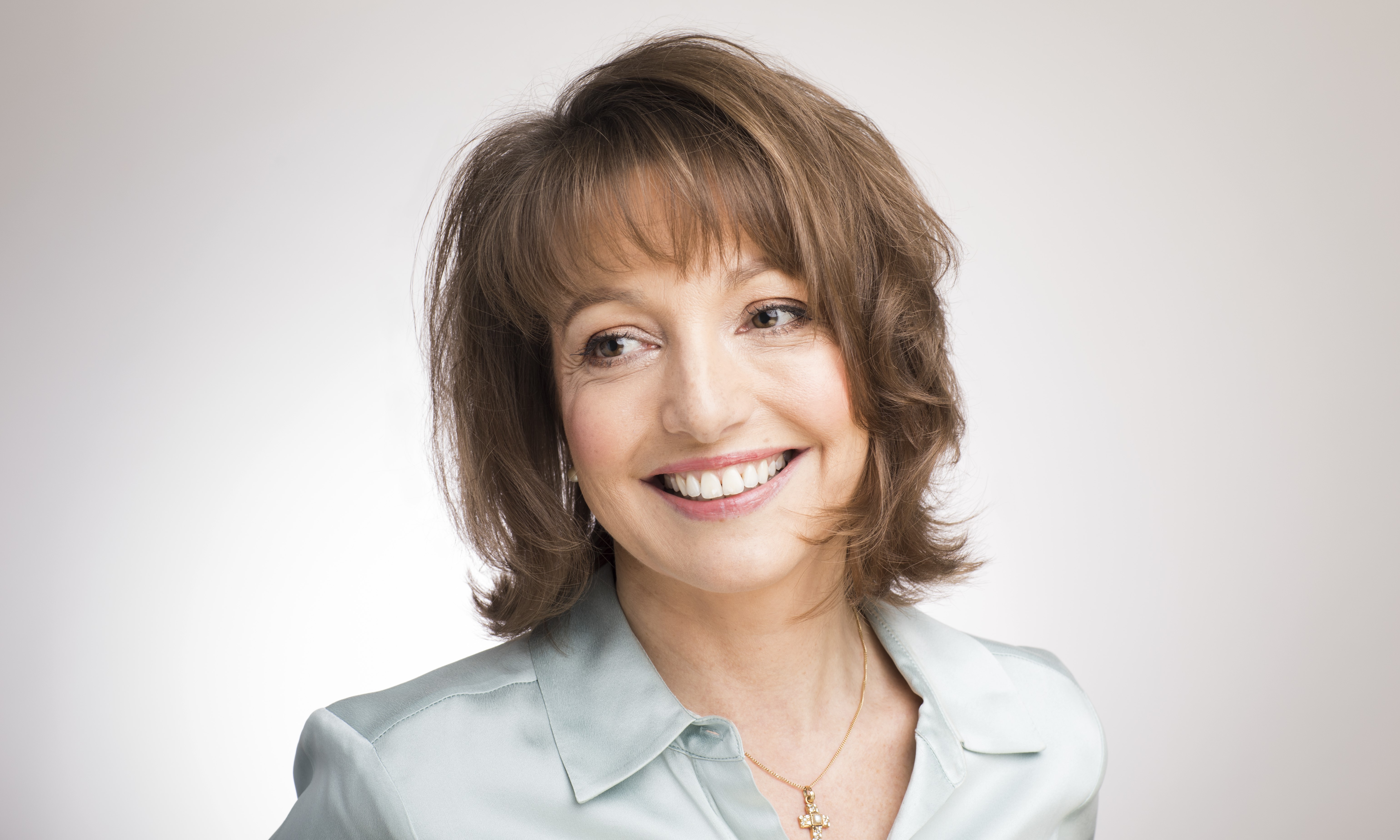 Roxanna Panufnik Roxanna has a great love of world music – this has culminated in her “Four World Seasons” for violinist Tasmin Little, the world premiere of which was picked by BBC Radio 3 to launch their Music Nations weekend, celebrating the London Olympics; her multi-faith Warner Classics CD “Love Abide” (www.loveabide.com) and “Dance of Life: Tallinn Mass” for Tallinn Philharmonic (www.tallinnmass.com), commissioned to celebrate Tallinn’s reign as European Capital of Culture. She is especially interested in building musical bridges between faiths and her first project in this field was the violin concerto “Abraham”, commissioned for Daniel Hope, incorporating Christian, Islamic and Jewish chant to create a musical analogy for the fact that these three faiths believe in the same one God. This work was subsequently converted into an overture for the World Orchestra for Peace and premiered in Jerusalem and London under the baton of Valery Gergiev, in 2008 and at the 2014 BBC Proms. Her 2017 opera “Silver Birch”, commissioned by Garsington Opera, was met with great audience and critical acclaim. 2018, Roxanna’s 50th Birthday year, saw some exciting commissions and premieres for the BBC Last Night of the Proms and a co-commissioned oratorio “Faithful Journey – a Mass for Poland” for City of Birmingham Symphony Orchestra and National Radio Symphony Orchestra of Poland, marking Poland’s centenary as an independent state. In 2019, she will have a new commission for two conductors and two choirs, premiered by Marin Alsop and Valentina Peleggi with the Baltimore Symphony Orchestra and then the Sao Paulo Symphony Orchestra. Roxanna has just finished an epic work, celebrating Beethoven’s 250th birthday, for the Rundfunkchor Berlin, Rundfunk Symphony Orchestra and 9 other choirs from all over the world, to be premiered at the Berlin Philharmonie in 2020. Roxanna’s compositions are published by Peter’s Edition Ltd and recorded on many labels including Warner Classics, Signum, Chandos, and EMI Classics.
Roxanna Panufnik Roxanna has a great love of world music – this has culminated in her “Four World Seasons” for violinist Tasmin Little, the world premiere of which was picked by BBC Radio 3 to launch their Music Nations weekend, celebrating the London Olympics; her multi-faith Warner Classics CD “Love Abide” (www.loveabide.com) and “Dance of Life: Tallinn Mass” for Tallinn Philharmonic (www.tallinnmass.com), commissioned to celebrate Tallinn’s reign as European Capital of Culture. She is especially interested in building musical bridges between faiths and her first project in this field was the violin concerto “Abraham”, commissioned for Daniel Hope, incorporating Christian, Islamic and Jewish chant to create a musical analogy for the fact that these three faiths believe in the same one God. This work was subsequently converted into an overture for the World Orchestra for Peace and premiered in Jerusalem and London under the baton of Valery Gergiev, in 2008 and at the 2014 BBC Proms. Her 2017 opera “Silver Birch”, commissioned by Garsington Opera, was met with great audience and critical acclaim. 2018, Roxanna’s 50th Birthday year, saw some exciting commissions and premieres for the BBC Last Night of the Proms and a co-commissioned oratorio “Faithful Journey – a Mass for Poland” for City of Birmingham Symphony Orchestra and National Radio Symphony Orchestra of Poland, marking Poland’s centenary as an independent state. In 2019, she will have a new commission for two conductors and two choirs, premiered by Marin Alsop and Valentina Peleggi with the Baltimore Symphony Orchestra and then the Sao Paulo Symphony Orchestra. Roxanna has just finished an epic work, celebrating Beethoven’s 250th birthday, for the Rundfunkchor Berlin, Rundfunk Symphony Orchestra and 9 other choirs from all over the world, to be premiered at the Berlin Philharmonie in 2020. Roxanna’s compositions are published by Peter’s Edition Ltd and recorded on many labels including Warner Classics, Signum, Chandos, and EMI Classics. -
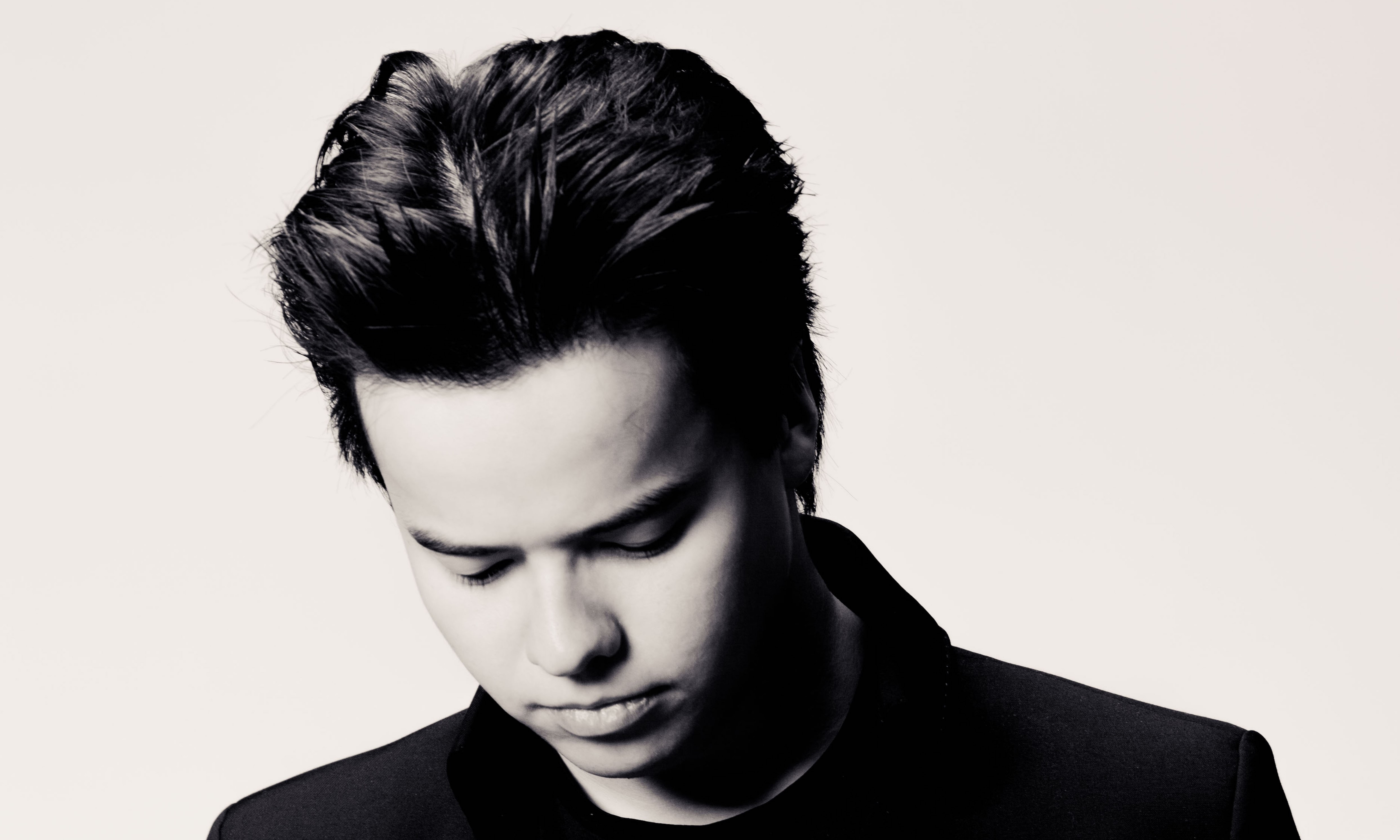 Roman Kim Internet star and breathtaking virtuoso. Sound innovator and witty arranger. The young violinist and composer Roman Kim is not only a multi-talent, but also a typical artist of our time. In addition to a flawless technique, which we all presuppose in a good violinist, Roman Kim has the daring and musicality for the specific virtuoso repertoire a la Paganini that liberates such works from the odour of the exclusively superficial. Roman Kim has a direct musical approach to this music, his own compositions reveal him as a gifted and conscious "epigone" of Paganini. Roman Kim's music is romantic, melodic and virtuoso. In his compositions, the artist discovers the boundless world of his instrument and brings many innovations to the sound possibilities of the violin. His paraphrases "I Brindisi" on Verdi's themes (published in 2013) strengthened his reputation as Paganini's "epigones". In April 2017 Roman Kim's "Three Romances" for violin and piano were published by "Bärenreiter".
Roman Kim Internet star and breathtaking virtuoso. Sound innovator and witty arranger. The young violinist and composer Roman Kim is not only a multi-talent, but also a typical artist of our time. In addition to a flawless technique, which we all presuppose in a good violinist, Roman Kim has the daring and musicality for the specific virtuoso repertoire a la Paganini that liberates such works from the odour of the exclusively superficial. Roman Kim has a direct musical approach to this music, his own compositions reveal him as a gifted and conscious "epigone" of Paganini. Roman Kim's music is romantic, melodic and virtuoso. In his compositions, the artist discovers the boundless world of his instrument and brings many innovations to the sound possibilities of the violin. His paraphrases "I Brindisi" on Verdi's themes (published in 2013) strengthened his reputation as Paganini's "epigones". In April 2017 Roman Kim's "Three Romances" for violin and piano were published by "Bärenreiter". -
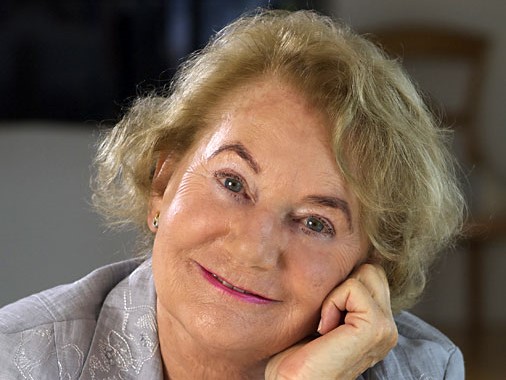 Ursula Bagdasarjanz Ursula Bagdasarjanz was born in Winterthur, Switzerland, to a mother who was herself an outstanding violinist. The seeds of Ursula's musical talent were sown in the cradle, or, as she herself believes, were bestowed as a gift to accompany her through life. Her father, Samuel Bagdasarjanz, who was of Armenian and Swiss extraction, was born in Romania, whence his family emigrated to Switzerland. Through her mother, Margrit Weiss, born in Switzerland, of Austrian and Swiss descent, Ursula learnt at an early age to express herself on her instrument. In 1944, at the age of ten, Ursula Bagdasarjanz gave her first concert (Beethoven Romance in F major). Her teachers were Aida Stucki in Winterthur, Switzerland (1944–1953), Marcel Reynal at the Conservatoire National Supérieur de Musique in Paris, France (1953–1956), where she was awarded the "Premier Prix de Violon" in 1956, and Sándor Végh in Basel, Switzerland (1957 and 1958). She took masterclasses with Joseph Calvet in Paris and Max Rostal in Bern. At the time Ursula Bagdasarjanz was taking violin lessons from Aida Stucki, the latter was herself a student of Carl Flesch, one of the most famous violin educators ever. This was a stroke of luck: as a child, Ursula Bagdasarjanz had already had the chance of familiarising herself with a unique method of work for violinists, the Carl Flesch scale system. In 2000, another Aida Stucki student, the violinist Anne-Sophie Mutter, wrote the introduction to Eric Rosenblith's new edition (published in English) to Carl Flesch's book on "The Art of Violin Playing". Another violinist having done extensive work on the Carl Flesch's works was Max Rostal. He published a new, revised and broader edition of the scale system in 1987 and passed his in-depth knowledge of the standard works of Carl Flesch on to students attending his masterclasses. As both soloist and a chamber musician, Ursula Bagdasarjanz pursued an active concert career. She did much for the composer Othmar Schoeck. She performed a full range of his violin works, including recordings of all his violin sonatas, accompanied by Gisela Schoeck, the composer's daughter.
Ursula Bagdasarjanz Ursula Bagdasarjanz was born in Winterthur, Switzerland, to a mother who was herself an outstanding violinist. The seeds of Ursula's musical talent were sown in the cradle, or, as she herself believes, were bestowed as a gift to accompany her through life. Her father, Samuel Bagdasarjanz, who was of Armenian and Swiss extraction, was born in Romania, whence his family emigrated to Switzerland. Through her mother, Margrit Weiss, born in Switzerland, of Austrian and Swiss descent, Ursula learnt at an early age to express herself on her instrument. In 1944, at the age of ten, Ursula Bagdasarjanz gave her first concert (Beethoven Romance in F major). Her teachers were Aida Stucki in Winterthur, Switzerland (1944–1953), Marcel Reynal at the Conservatoire National Supérieur de Musique in Paris, France (1953–1956), where she was awarded the "Premier Prix de Violon" in 1956, and Sándor Végh in Basel, Switzerland (1957 and 1958). She took masterclasses with Joseph Calvet in Paris and Max Rostal in Bern. At the time Ursula Bagdasarjanz was taking violin lessons from Aida Stucki, the latter was herself a student of Carl Flesch, one of the most famous violin educators ever. This was a stroke of luck: as a child, Ursula Bagdasarjanz had already had the chance of familiarising herself with a unique method of work for violinists, the Carl Flesch scale system. In 2000, another Aida Stucki student, the violinist Anne-Sophie Mutter, wrote the introduction to Eric Rosenblith's new edition (published in English) to Carl Flesch's book on "The Art of Violin Playing". Another violinist having done extensive work on the Carl Flesch's works was Max Rostal. He published a new, revised and broader edition of the scale system in 1987 and passed his in-depth knowledge of the standard works of Carl Flesch on to students attending his masterclasses. As both soloist and a chamber musician, Ursula Bagdasarjanz pursued an active concert career. She did much for the composer Othmar Schoeck. She performed a full range of his violin works, including recordings of all his violin sonatas, accompanied by Gisela Schoeck, the composer's daughter. -
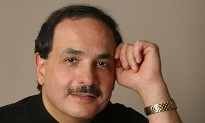 Behzad Ranjbaran Behzad Ranjbaran is known for music which is both evocative and colorful, and also strong in structural integrity and form. He frequently draws inspiration from his cultural roots and Persian heritage in form or subject matter, as exemplified by the tone poems of the “Persian Trilogy”, or the interpretation of sounds and styles in works such as the Violin Concerto and Songs of Eternity. Ranjbaran’s music has been performed all over the world, including South Korea, where Awakening (commissioned by Sejong Soloists) premiered at the Great Mountains Music Festival as a celebration of peace. His music has been performed by soloists such as Joshua Bell, Renée Fleming, Jean-Yves Thibaudet, and Yo-Yo Ma, and conductors including Charles Dutoit, Yannick Nézet-Séguin, Marin Alsop, Robert Spano, Gerard Schwarz, JoAnn Falletta, Miguel Harth-Bedoya, David Robertson, and many more. He has also served as composer in residence for the Philadelphia Orchestra’s summer season at Saratoga, the Fort Worth Symphony, and the Cabrillo Festival of Contemporary Music. Born on July 1, 1955 in Tehran, Iran, Mr. Ranjbaran is the recipient of the Rudolf Nissim Award for his Violin Concerto. His musical education started early when he entered the Tehran Music Conservatory at the age of nine. He came to the United States in 1974 to attend Indiana University and received his doctorate in composition from The Juilliard School, where he currently serves on the faculty.
Behzad Ranjbaran Behzad Ranjbaran is known for music which is both evocative and colorful, and also strong in structural integrity and form. He frequently draws inspiration from his cultural roots and Persian heritage in form or subject matter, as exemplified by the tone poems of the “Persian Trilogy”, or the interpretation of sounds and styles in works such as the Violin Concerto and Songs of Eternity. Ranjbaran’s music has been performed all over the world, including South Korea, where Awakening (commissioned by Sejong Soloists) premiered at the Great Mountains Music Festival as a celebration of peace. His music has been performed by soloists such as Joshua Bell, Renée Fleming, Jean-Yves Thibaudet, and Yo-Yo Ma, and conductors including Charles Dutoit, Yannick Nézet-Séguin, Marin Alsop, Robert Spano, Gerard Schwarz, JoAnn Falletta, Miguel Harth-Bedoya, David Robertson, and many more. He has also served as composer in residence for the Philadelphia Orchestra’s summer season at Saratoga, the Fort Worth Symphony, and the Cabrillo Festival of Contemporary Music. Born on July 1, 1955 in Tehran, Iran, Mr. Ranjbaran is the recipient of the Rudolf Nissim Award for his Violin Concerto. His musical education started early when he entered the Tehran Music Conservatory at the age of nine. He came to the United States in 1974 to attend Indiana University and received his doctorate in composition from The Juilliard School, where he currently serves on the faculty. -
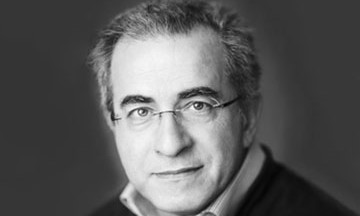 Naji Hakim Naji Subhy Paul Irénée HAKIM was born in Beirut , 31 October, 1955. He studied with Jean Langlais (organ), Evelyne Aïello (conducting), and at the Conservatoire National Supérieur de Musique de Paris - classes of Roger Boutry (harmony), Jean-Claude Henry (counterpoint), Marcel Bitsch (fugue), Rolande Falcinelli (organ), Jacques Castérède (analysis) and Serge Nigg (orchestration), where he was awarded seven first prizes. He is a licentiate teacher in organ from Trinity College of Music in London and won ten first prizes at international organ and composition competitions. In 1991 he was awarded the Prix André Caplet from the Académie des Beaux-Arts and in 2009 the Premier Prix du Concours de Musique Sacrée de la Cathédrale de Monaco. At first organist of the Basilique du Sacré-Coeur, Paris from 1985 until 1993, he then became organist of l'église de la Trinité, in succession to Olivier Messiaen (1993-2008). He was professor of musical analysis at the Conservatoire National de Région de Boulogne-Billancourt (1988-2019). He is visiting professor at the Royal Academy of Music, London, graduate of the École Nationale Supérieure des Télécommunications in Paris, member of the Consociatio Internationalis Musicae Sacrae in Rome and Doctor honoris causa of the Pontifical University Saint-Esprit of Kaslik, Lebanon. In 2007, His Holiness Pope Benedict XVI awarded Naji Hakim The Augustae crucis insigne pro Ecclesia et Pontifice, for his excellent commitment and work for the benefit of the Church and the Holy Father. His works include instrumental music (organ, flute, bassoon, horn, trumpet, harp, guitar, violin, piano), symphonic music (Les Noces de l'Agneau, Hymne de l'Univers, Ouverture Libanaise, Påskeblomst, Augsburger Symphonie, five organ concertos, a violin concerto, a piano concerto), and vocal music (oratorio Saul de Tarse, cantata Phèdre, Magnificat and four masses). Naji Hakim is married to Marie-Bernadette Dufourcet, organist, composer and musicologist. They have two children: Katia-Sofía, poet, pianist and musicologist, and Jean-Paul, lawyer, pianist and composer.
Naji Hakim Naji Subhy Paul Irénée HAKIM was born in Beirut , 31 October, 1955. He studied with Jean Langlais (organ), Evelyne Aïello (conducting), and at the Conservatoire National Supérieur de Musique de Paris - classes of Roger Boutry (harmony), Jean-Claude Henry (counterpoint), Marcel Bitsch (fugue), Rolande Falcinelli (organ), Jacques Castérède (analysis) and Serge Nigg (orchestration), where he was awarded seven first prizes. He is a licentiate teacher in organ from Trinity College of Music in London and won ten first prizes at international organ and composition competitions. In 1991 he was awarded the Prix André Caplet from the Académie des Beaux-Arts and in 2009 the Premier Prix du Concours de Musique Sacrée de la Cathédrale de Monaco. At first organist of the Basilique du Sacré-Coeur, Paris from 1985 until 1993, he then became organist of l'église de la Trinité, in succession to Olivier Messiaen (1993-2008). He was professor of musical analysis at the Conservatoire National de Région de Boulogne-Billancourt (1988-2019). He is visiting professor at the Royal Academy of Music, London, graduate of the École Nationale Supérieure des Télécommunications in Paris, member of the Consociatio Internationalis Musicae Sacrae in Rome and Doctor honoris causa of the Pontifical University Saint-Esprit of Kaslik, Lebanon. In 2007, His Holiness Pope Benedict XVI awarded Naji Hakim The Augustae crucis insigne pro Ecclesia et Pontifice, for his excellent commitment and work for the benefit of the Church and the Holy Father. His works include instrumental music (organ, flute, bassoon, horn, trumpet, harp, guitar, violin, piano), symphonic music (Les Noces de l'Agneau, Hymne de l'Univers, Ouverture Libanaise, Påskeblomst, Augsburger Symphonie, five organ concertos, a violin concerto, a piano concerto), and vocal music (oratorio Saul de Tarse, cantata Phèdre, Magnificat and four masses). Naji Hakim is married to Marie-Bernadette Dufourcet, organist, composer and musicologist. They have two children: Katia-Sofía, poet, pianist and musicologist, and Jean-Paul, lawyer, pianist and composer. -
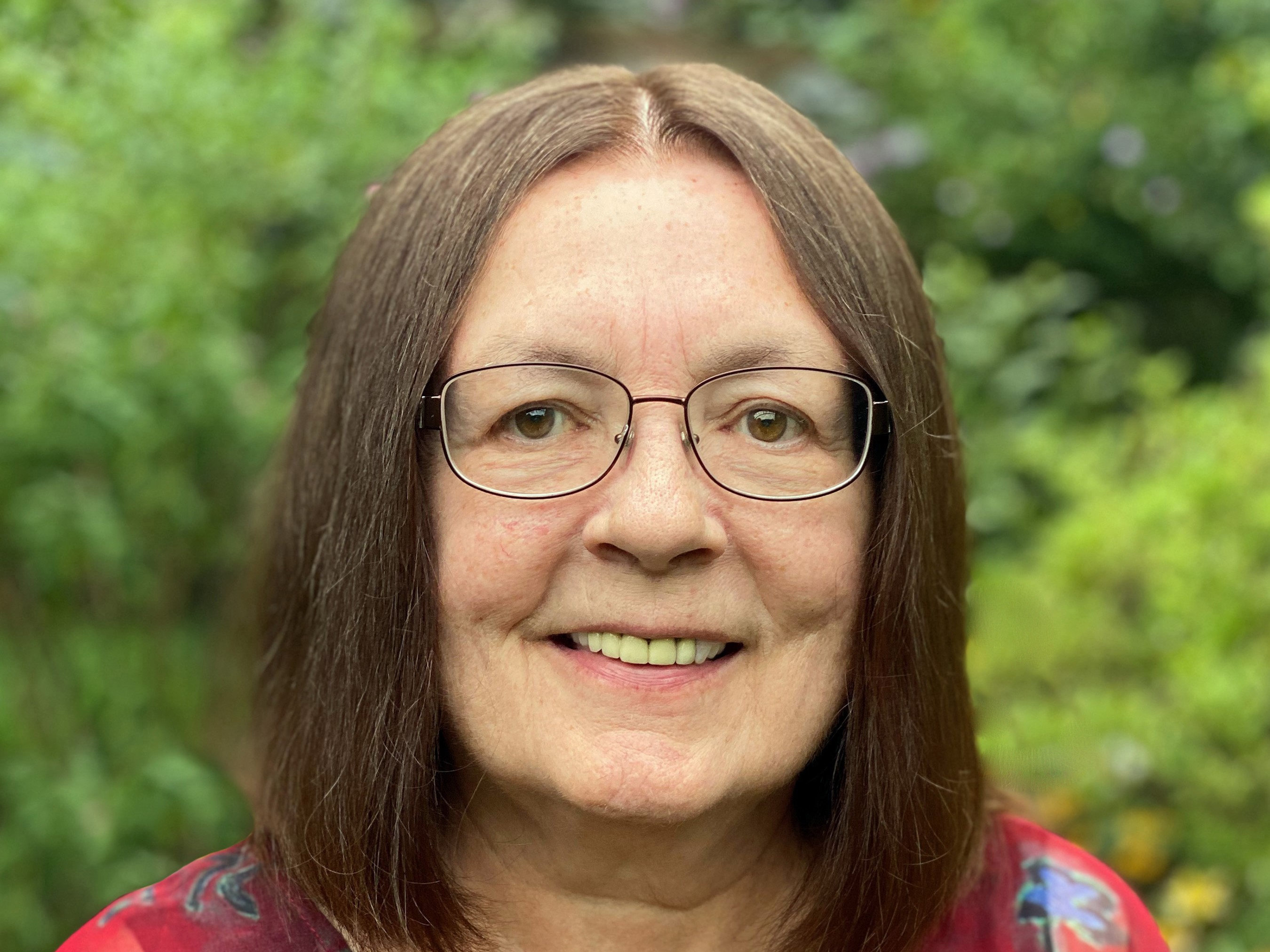 Nancy Galbraith Nancy Galbraith (b.1951) resides in Pittsburgh, Pennsylvania, USA, where she is Chair of Composition at the Carnegie Mellon University School of Music, and holds the Vira I Heinz Professorship of Music endowed chair. In a career that spans four decades, her music has earned praise for its rich harmonic texture, rhythmic vitality, emotional and spiritual depth, and wide range of expression. Her works have been directed by some of the world's finest conductors, including Gennady Rozhdestvensky, Mariss Jansons, Keith Lockhart, Donald Runnicles and Robert Page. Her compositions are featured on numerous recordings, including nine anthologies. With major contributions to the repertoires of symphony orchestras, concert choirs, wind ensembles, chamber ensembles, electroacoustic ensembles, and soloists, Galbraith plays a leading role in defining the sound of contemporary classical music.
Nancy Galbraith Nancy Galbraith (b.1951) resides in Pittsburgh, Pennsylvania, USA, where she is Chair of Composition at the Carnegie Mellon University School of Music, and holds the Vira I Heinz Professorship of Music endowed chair. In a career that spans four decades, her music has earned praise for its rich harmonic texture, rhythmic vitality, emotional and spiritual depth, and wide range of expression. Her works have been directed by some of the world's finest conductors, including Gennady Rozhdestvensky, Mariss Jansons, Keith Lockhart, Donald Runnicles and Robert Page. Her compositions are featured on numerous recordings, including nine anthologies. With major contributions to the repertoires of symphony orchestras, concert choirs, wind ensembles, chamber ensembles, electroacoustic ensembles, and soloists, Galbraith plays a leading role in defining the sound of contemporary classical music. -
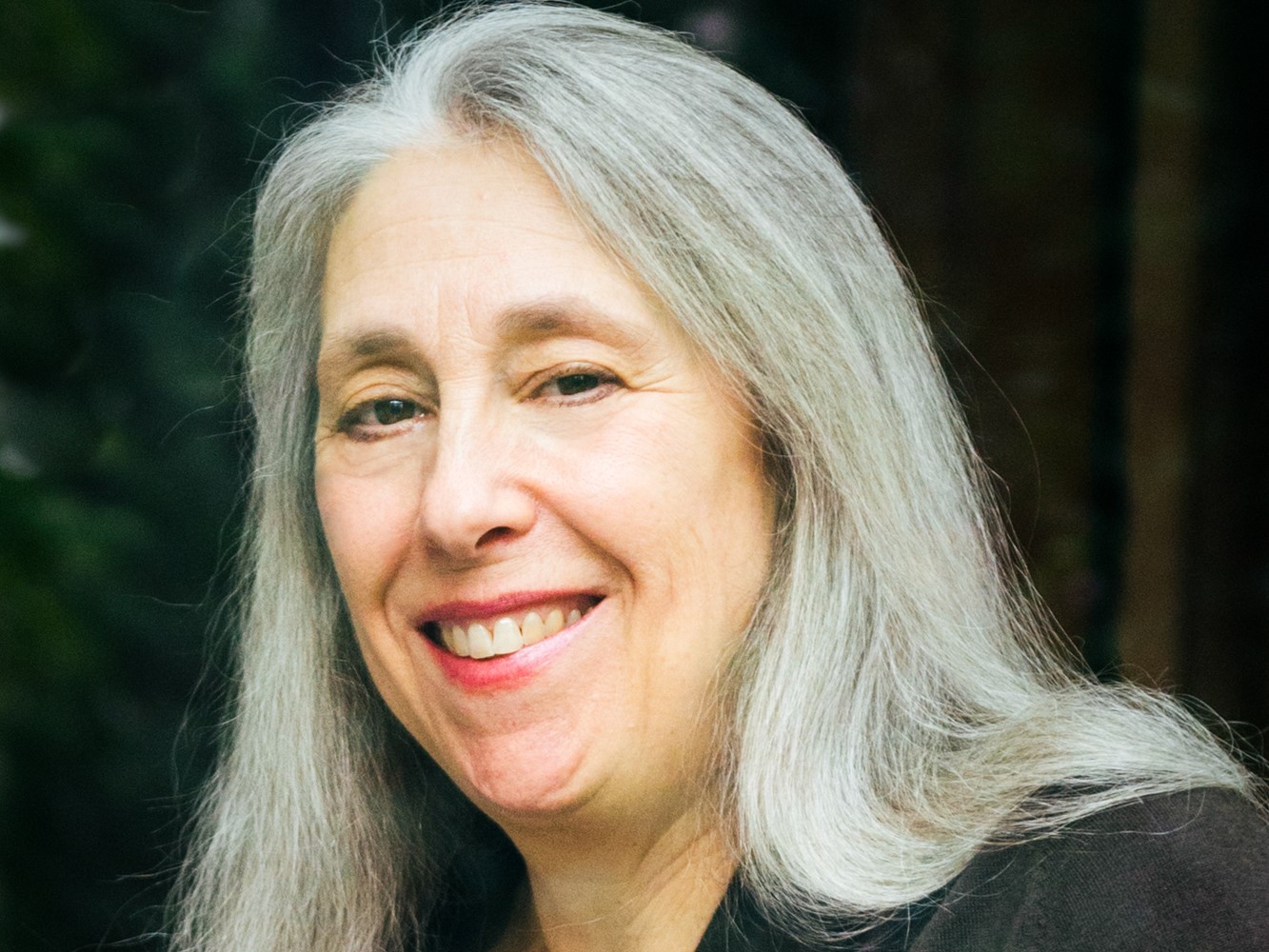 Susan Kander The music of Susan Kander has been heard throughout the United States and in cities around the world, including London, Paris, Mexico City, Lima, Birmingham, Vancouver, Cape Town, St. Petersburg and Guangzhou. Kander has received numerous commissions from notable ensembles and organizations, including the National Symphony Orchestra, Southampton Chamber Music Festival, the Copland Fund, the Kansas City Chorale, the Columbia Foundation, and a variety of instrumentalists and ensembles. In the opera world, she has received commissions from Opera Minnesota, Opera Theater of St. Louis, Lyric Opera of Kansas City, and Columbus Opera. Her chamber opera The News from Poems was given a concert reading in April 2016 at the National Opera Center featuring Keith Phares, Katherine Pracht, and John Taylor Ward. In 2012, Minnesota Opera and Lyric Opera of Kansas City co-commissioned an adaptation of the seminal dystopian novel The Giver by Lois Lowry; the 85-minute chamber opera received its third production in January 2015 at Tulsa Opera. Knight Arts, St. Paul, called it a “remarkable new work…. Her instrumental scoring is atmospheric and unobtrusive…but the vocals take priority… This adaptation is a sophisticated and subtle work, in terms of both music and story.” A chamber orchestration for She Never Lost a Passenger, about Harriet Tubman and black abolitionist William Still (1996) was commissioned by Erie Opera Company in 2015, and premiered by Lyric Opera of Kansas City in 2016. Miranda’s Waltz for narrator and orchestra, commissioned/premiered in 2009 by the National Symphony Orchestra, was programmed and live-streamed around the world in May 2017 from Melbourne by the Australian Discovery Orchestra. Regarding her 2009 solo bassoon commission The Lunch Counter, Fanfare Magazine wrote: “Kander’s Lunch Counter alone is so fascinating that it is worth the price of the recording.” Her 2013 work Hermestänze, for violin and piano, commissioned by Jacob Ashworth, violinist and Artistic Director of the ensemble Cantata Profana (also her son), is a rare example of a large-scale dramatic cycle written for the violin. It is the title work on the eponymous CD which features Ashworth and members of Cantata Profana performing three of Kander's violin-centric works. She is especially proud to have had her Solo Sonata for violin-viola-violin (included on the MSR release) performed in the Composers’ Forum in St. Petersburg, Russia, by commissioner Yuval Waldman during their White Nights festival. Kander received her B.A. in Music at Harvard in 1979 and was a playwright until “coming home to music” in the mid-1990’s. In 2015, after composing busily for twenty-years, she decided to blow things up by finally attending graduate school in composition. She studied with Du Yun and Huang Ruo at Purchase Conservatory, re-arranging the furniture in her mind and earning her M.M. in Composition in 2017. Those two years produced a bouquet of new works for both orchestra and chamber ensemble. Her works can be found on Soundcloud and Youtube. She is a Fellow of the MacDowell Colony. Her music has been recorded on the MSR, Navona and Loose Cans labels. www.susankander.net
Susan Kander The music of Susan Kander has been heard throughout the United States and in cities around the world, including London, Paris, Mexico City, Lima, Birmingham, Vancouver, Cape Town, St. Petersburg and Guangzhou. Kander has received numerous commissions from notable ensembles and organizations, including the National Symphony Orchestra, Southampton Chamber Music Festival, the Copland Fund, the Kansas City Chorale, the Columbia Foundation, and a variety of instrumentalists and ensembles. In the opera world, she has received commissions from Opera Minnesota, Opera Theater of St. Louis, Lyric Opera of Kansas City, and Columbus Opera. Her chamber opera The News from Poems was given a concert reading in April 2016 at the National Opera Center featuring Keith Phares, Katherine Pracht, and John Taylor Ward. In 2012, Minnesota Opera and Lyric Opera of Kansas City co-commissioned an adaptation of the seminal dystopian novel The Giver by Lois Lowry; the 85-minute chamber opera received its third production in January 2015 at Tulsa Opera. Knight Arts, St. Paul, called it a “remarkable new work…. Her instrumental scoring is atmospheric and unobtrusive…but the vocals take priority… This adaptation is a sophisticated and subtle work, in terms of both music and story.” A chamber orchestration for She Never Lost a Passenger, about Harriet Tubman and black abolitionist William Still (1996) was commissioned by Erie Opera Company in 2015, and premiered by Lyric Opera of Kansas City in 2016. Miranda’s Waltz for narrator and orchestra, commissioned/premiered in 2009 by the National Symphony Orchestra, was programmed and live-streamed around the world in May 2017 from Melbourne by the Australian Discovery Orchestra. Regarding her 2009 solo bassoon commission The Lunch Counter, Fanfare Magazine wrote: “Kander’s Lunch Counter alone is so fascinating that it is worth the price of the recording.” Her 2013 work Hermestänze, for violin and piano, commissioned by Jacob Ashworth, violinist and Artistic Director of the ensemble Cantata Profana (also her son), is a rare example of a large-scale dramatic cycle written for the violin. It is the title work on the eponymous CD which features Ashworth and members of Cantata Profana performing three of Kander's violin-centric works. She is especially proud to have had her Solo Sonata for violin-viola-violin (included on the MSR release) performed in the Composers’ Forum in St. Petersburg, Russia, by commissioner Yuval Waldman during their White Nights festival. Kander received her B.A. in Music at Harvard in 1979 and was a playwright until “coming home to music” in the mid-1990’s. In 2015, after composing busily for twenty-years, she decided to blow things up by finally attending graduate school in composition. She studied with Du Yun and Huang Ruo at Purchase Conservatory, re-arranging the furniture in her mind and earning her M.M. in Composition in 2017. Those two years produced a bouquet of new works for both orchestra and chamber ensemble. Her works can be found on Soundcloud and Youtube. She is a Fellow of the MacDowell Colony. Her music has been recorded on the MSR, Navona and Loose Cans labels. www.susankander.net -
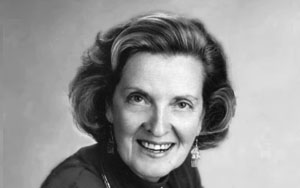 Ruth Watson Henderson Ruth Watson Henderson was the recipient of many scholarships and awards while studying piano 1937–45 with Viggo Kihl and 1945–52 with Alberto Guerrero at the Toronto Conservatory of Music (Royal Conservatory of Music). She continued her studies 1952–4 with Hans Neumann in New York on scholarship from the Mannes College of Music. Her composition teachers included Oscar Morawetz, Richard Johnston, and Samuel Dolin. After her professional debut in Toronto in 1952 she was active as a concert pianist appearing frequently as soloist with Canadian orchestras and regularly on CBC radio. In 1956 she won the grand prize of the CBC's Opportunity Knocks. She taught and was an organist‑choirmaster 1957–61 in Winnipeg and 1962‐8 in Kitchener, Ontario, returning thereafter to Toronto. Henderson began composing while accompanist of the Festival Singers 1968–79 and since then has been a prolific composer, writing more than eighty pieces for the choral repertory alone. Her harmonies often draw from modal or impressionistic influences and her rhythms closely follow the text she is setting. Many of her compositions continue to be popular in Canada and around the world, where she is often requested to accompany or adjudicate at festivals and competitions. Best known as a composer of choral music, Henderson has also written for organ, piano, string orchestra, and for winds, brass and percussion. Her Chromatic Partita for Organ was a prizewinner at the International Competition for Women Composers in Mannheim, Germany, in 1989. She has received commissions from the Alliance for Canadian New Music Projects (Through the Eyes of Children), the Guelph Spring Festival (The Ballad of St George), the Oriana Singers (Toronto) (Songs of the Nativity), the Toronto Children's Chorus (The Last Straw, featuring tenor Ben Heppner), the Amadeus Choir of Scarborough (Voices of the Earth), and the Elora Festival (Five Ontario Folk Songs), among others. Henderson's more recent commissions include works for the twenty-fifth anniversary of the Contemporary Showcase in 1995; the 2002 national convention of the American Guild of Organists (Darkness to Light); the Mount Royal Kantorei (Magnificat); and Chorus Niagara's fortieth anniversary in 2003 (Voice of Niagara). Upcoming commissions include a work for the Bach Elgar Choir of Hamilton, combined with the Hamilton Children's Chorus.
Ruth Watson Henderson Ruth Watson Henderson was the recipient of many scholarships and awards while studying piano 1937–45 with Viggo Kihl and 1945–52 with Alberto Guerrero at the Toronto Conservatory of Music (Royal Conservatory of Music). She continued her studies 1952–4 with Hans Neumann in New York on scholarship from the Mannes College of Music. Her composition teachers included Oscar Morawetz, Richard Johnston, and Samuel Dolin. After her professional debut in Toronto in 1952 she was active as a concert pianist appearing frequently as soloist with Canadian orchestras and regularly on CBC radio. In 1956 she won the grand prize of the CBC's Opportunity Knocks. She taught and was an organist‑choirmaster 1957–61 in Winnipeg and 1962‐8 in Kitchener, Ontario, returning thereafter to Toronto. Henderson began composing while accompanist of the Festival Singers 1968–79 and since then has been a prolific composer, writing more than eighty pieces for the choral repertory alone. Her harmonies often draw from modal or impressionistic influences and her rhythms closely follow the text she is setting. Many of her compositions continue to be popular in Canada and around the world, where she is often requested to accompany or adjudicate at festivals and competitions. Best known as a composer of choral music, Henderson has also written for organ, piano, string orchestra, and for winds, brass and percussion. Her Chromatic Partita for Organ was a prizewinner at the International Competition for Women Composers in Mannheim, Germany, in 1989. She has received commissions from the Alliance for Canadian New Music Projects (Through the Eyes of Children), the Guelph Spring Festival (The Ballad of St George), the Oriana Singers (Toronto) (Songs of the Nativity), the Toronto Children's Chorus (The Last Straw, featuring tenor Ben Heppner), the Amadeus Choir of Scarborough (Voices of the Earth), and the Elora Festival (Five Ontario Folk Songs), among others. Henderson's more recent commissions include works for the twenty-fifth anniversary of the Contemporary Showcase in 1995; the 2002 national convention of the American Guild of Organists (Darkness to Light); the Mount Royal Kantorei (Magnificat); and Chorus Niagara's fortieth anniversary in 2003 (Voice of Niagara). Upcoming commissions include a work for the Bach Elgar Choir of Hamilton, combined with the Hamilton Children's Chorus. -
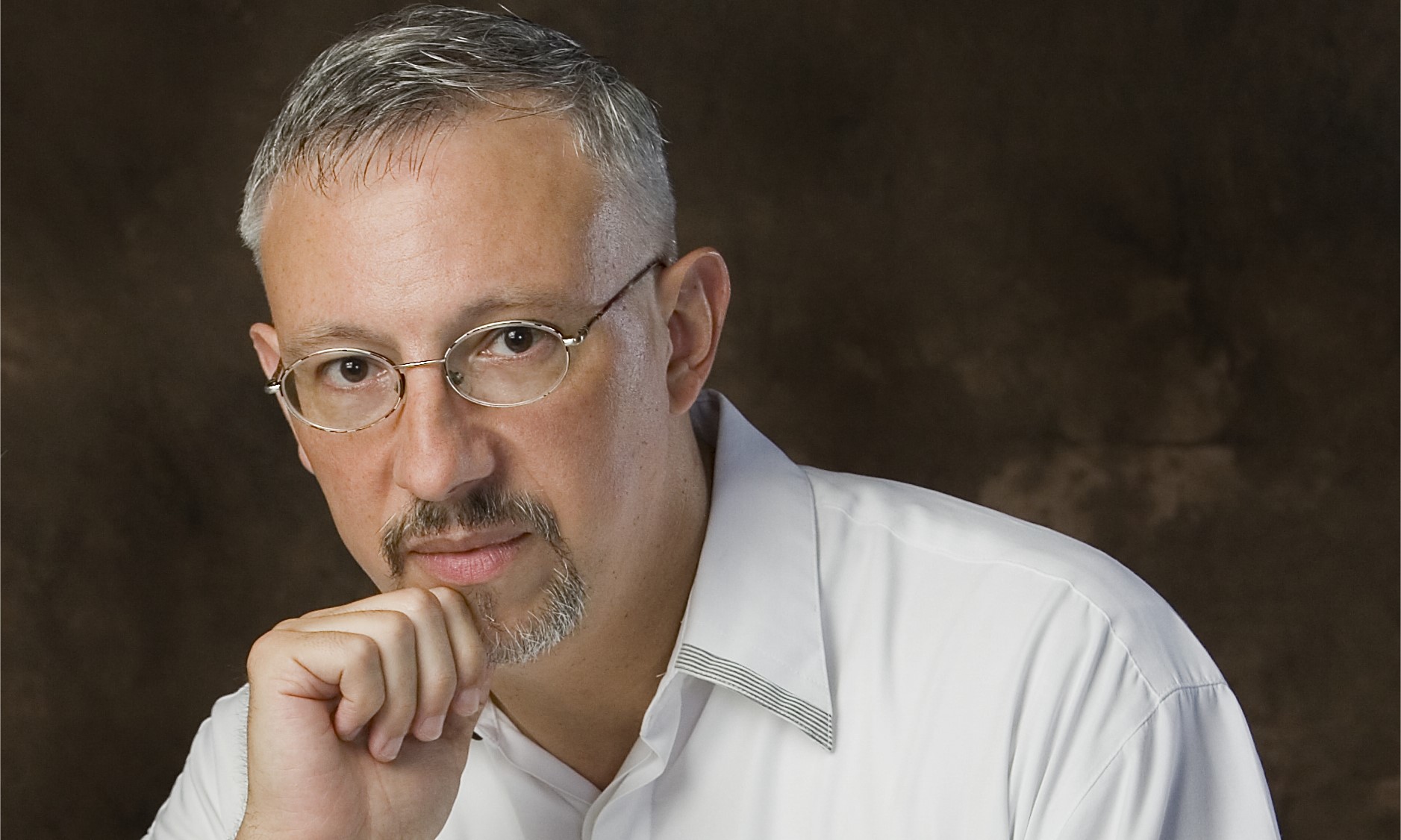 Miguel del Águila Three-time Grammy-nominated American composer Miguel del Aguila is among the most distinctive and highly regarded composers of his generation, with over 120 works that couple drama and driving rhythm with nostalgic nods to his South American roots. His music, recorded in 45 CDs, has been hailed as “brilliant and witty” (The New York Times), “sonically dazzling” (Los Angeles Times), and “exquisitely imaginative” (Fanfare). Aguila has been commissioned or performed by over 100 orchestras including the Royal Liverpool Philharmonic, the Buffalo Philharmonic, the symphonies of Toronto, Nashville, Seattle, Albany, San Antonio, Long Beach, and Virginia, and the Welsh BBC; the Philharmonic Orchestras of Heidelberg, Kiev and Odessa; the Norwegian Radio Orchestra, Brandenburgisches Staatsorchester, and the Sinfónica Nacional and Filarmónica de México; by ensembles such as Cuarteto Latinoamericano, Windscape, New Juilliard Ensemble, Camerata de las Americas, Imani Winds, Fifth House Ensemble, and the Pacifica and Verona Quartets. He has collaborated with conductors such as JoAnn Falletta, Giancarlo Guerrero, Marin Alsop, Carlos Miguel Prieto, Gerard Schwarz, David Alan Miller, Lukas Foss, Eckart Preu, and Ken Masur; and with soloists Manuel Barrueco and Richard Stoltzman among many others. He has received a Kennedy Center Friedheim Award and both a Music Alive Award and a Magnum Opus/Kathryn Gould Award from New Music USA. He was Lancaster Symphony’s 2009 Composer of the Year, and has won grants from the Copland and Argosy Foundations. Born in Uruguay in 1957, Aguila received musical training there, and at the conservatories of San Francisco and Vienna. After winning acclaim as pianist and composer in Vienna, he re-established himself in the U.S. in 1989 with a program of piano music at Carnegie Recital Hall and the premiere of Hexen by the Brooklyn Philharmonic conducted by Lukas Foss. He returned to California in 1992; soon thereafter the LA Times called him “one of the West Coast’s most promising young composers”. A sought-after lecturer, curator and educator, Aguila is a frequent competition jurist and guest composer. He is 2020 Composer in Residence with Orchestra de las Americas and with Festival Alfredo de Saint Malo. His music is published by Peermusic Classical and Theodore Presser, and is self-published
Miguel del Águila Three-time Grammy-nominated American composer Miguel del Aguila is among the most distinctive and highly regarded composers of his generation, with over 120 works that couple drama and driving rhythm with nostalgic nods to his South American roots. His music, recorded in 45 CDs, has been hailed as “brilliant and witty” (The New York Times), “sonically dazzling” (Los Angeles Times), and “exquisitely imaginative” (Fanfare). Aguila has been commissioned or performed by over 100 orchestras including the Royal Liverpool Philharmonic, the Buffalo Philharmonic, the symphonies of Toronto, Nashville, Seattle, Albany, San Antonio, Long Beach, and Virginia, and the Welsh BBC; the Philharmonic Orchestras of Heidelberg, Kiev and Odessa; the Norwegian Radio Orchestra, Brandenburgisches Staatsorchester, and the Sinfónica Nacional and Filarmónica de México; by ensembles such as Cuarteto Latinoamericano, Windscape, New Juilliard Ensemble, Camerata de las Americas, Imani Winds, Fifth House Ensemble, and the Pacifica and Verona Quartets. He has collaborated with conductors such as JoAnn Falletta, Giancarlo Guerrero, Marin Alsop, Carlos Miguel Prieto, Gerard Schwarz, David Alan Miller, Lukas Foss, Eckart Preu, and Ken Masur; and with soloists Manuel Barrueco and Richard Stoltzman among many others. He has received a Kennedy Center Friedheim Award and both a Music Alive Award and a Magnum Opus/Kathryn Gould Award from New Music USA. He was Lancaster Symphony’s 2009 Composer of the Year, and has won grants from the Copland and Argosy Foundations. Born in Uruguay in 1957, Aguila received musical training there, and at the conservatories of San Francisco and Vienna. After winning acclaim as pianist and composer in Vienna, he re-established himself in the U.S. in 1989 with a program of piano music at Carnegie Recital Hall and the premiere of Hexen by the Brooklyn Philharmonic conducted by Lukas Foss. He returned to California in 1992; soon thereafter the LA Times called him “one of the West Coast’s most promising young composers”. A sought-after lecturer, curator and educator, Aguila is a frequent competition jurist and guest composer. He is 2020 Composer in Residence with Orchestra de las Americas and with Festival Alfredo de Saint Malo. His music is published by Peermusic Classical and Theodore Presser, and is self-published -
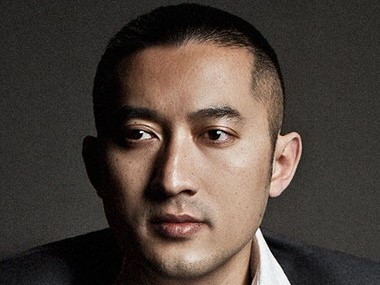 Huang Ruo Artistic Style Huang Ruo has been lauded by the New Yorker as “one of the world’s leading young composers” and by the New York Times for having “a distinctive style.” His vibrant and inventive musical voice draws equal inspiration from Chinese ancient and folk music, Western avant-garde, experimental, noise, natural and processed sound, rock, and jazz. As a member of the new generation of Chinese composers, his goal is not just to mix both Western and Eastern elements, but also to create a seamless, organic integration. Huang Ruo’s diverse compositional works span from orchestra, chamber music, opera, theater, and dance, to cross-genre, sound installation, multi-media, experimental improvisation, folk rock, and film. Performers Huang Ruo’s music has been premiered and performed by orchestras such as the New York Philharmonic, Philadelphia Orchestra, San Francisco Symphony, Seattle Symphony, National Polish Radio Orchestra, Kiel Philharmonic Orchestra and the Hong Kong Philharmonic, ensembles and quartets such as Chamber Music Society of Lincoln Center, Asko/Schoenberg Ensemble, Ensemble Modern, London Sinfonietta, Remix Ensemble, Quatuor Diotima, and Ethel Quartet and conductors such as Wolfgang Sawallisch, Michael Tilson Thomas, James Conlon, Marin Alsop, Dennis Russell Davies, Ed Spanjaard, Peter Rundel, Alexander Liebreich, Xian Zhang, and Ilan Volkov. Operas Huang Ruo’s opera Dr. Sun Yat-Sen had its American premiere at the Santa Fe Opera in 2014 and will receive its Canadian premiere by the Vancouver Opera for its future season. His opera Paradise Interrupted received its world premiere at the Spoleto Festival USA in 2015 and was performed at the Lincoln Center Festival in 2016, before going on tour to Asia and Europe. In addition, his works were shown at Washington National Opera, Houston Grand Opera, New York City Opera and Opera Hong Kong. Residencies Huang Ruo was the first composer-in-residence of Het Concertgebouw Amsterdam. He is also in residence at the National Symphony Orchestra of Taiwan. Education Huang Ruo was born in Hainan Island, China in 1976 – the year the Chinese Cultural Revolution ended. His father, who is also a composer, began teaching him composition and piano when he was six years old. Growing up in the 1980s and 1990s, when China was opening its gate to the Western world, he received both traditional and Western education at the Shanghai Conservatory of Music. As a result of the dramatic cultural and economic changes in China following the Cultural Revolution, his education expanded from Bach, Mozart, Stravinsky, and Lutoslawski, to include the Beatles, rock and roll, heavy metal, and jazz. Huang Ruo was able to absorb all of these newly allowed Western influences equally. After winning the Henry Mancini Award at the 1995 International Film and Music Festival in Switzerland, Huang Ruo moved to the United States to further his education. He earned a Bachelor of Music degree from the Oberlin Conservatory of Music and Master of Music and Doctor of Musical Arts degrees in composition from the Juilliard School. Huang Ruo as a Teacher and Conductor Huang Ruo is currently on the composition faculty at the Mannes College of Music at the New School in NY. He is the artistic director and conductor of Ensemble FIRE (Future In REverse), and was selected as a Young Leader Fellow by the National Committee on United States–China Relations in 2006.
Huang Ruo Artistic Style Huang Ruo has been lauded by the New Yorker as “one of the world’s leading young composers” and by the New York Times for having “a distinctive style.” His vibrant and inventive musical voice draws equal inspiration from Chinese ancient and folk music, Western avant-garde, experimental, noise, natural and processed sound, rock, and jazz. As a member of the new generation of Chinese composers, his goal is not just to mix both Western and Eastern elements, but also to create a seamless, organic integration. Huang Ruo’s diverse compositional works span from orchestra, chamber music, opera, theater, and dance, to cross-genre, sound installation, multi-media, experimental improvisation, folk rock, and film. Performers Huang Ruo’s music has been premiered and performed by orchestras such as the New York Philharmonic, Philadelphia Orchestra, San Francisco Symphony, Seattle Symphony, National Polish Radio Orchestra, Kiel Philharmonic Orchestra and the Hong Kong Philharmonic, ensembles and quartets such as Chamber Music Society of Lincoln Center, Asko/Schoenberg Ensemble, Ensemble Modern, London Sinfonietta, Remix Ensemble, Quatuor Diotima, and Ethel Quartet and conductors such as Wolfgang Sawallisch, Michael Tilson Thomas, James Conlon, Marin Alsop, Dennis Russell Davies, Ed Spanjaard, Peter Rundel, Alexander Liebreich, Xian Zhang, and Ilan Volkov. Operas Huang Ruo’s opera Dr. Sun Yat-Sen had its American premiere at the Santa Fe Opera in 2014 and will receive its Canadian premiere by the Vancouver Opera for its future season. His opera Paradise Interrupted received its world premiere at the Spoleto Festival USA in 2015 and was performed at the Lincoln Center Festival in 2016, before going on tour to Asia and Europe. In addition, his works were shown at Washington National Opera, Houston Grand Opera, New York City Opera and Opera Hong Kong. Residencies Huang Ruo was the first composer-in-residence of Het Concertgebouw Amsterdam. He is also in residence at the National Symphony Orchestra of Taiwan. Education Huang Ruo was born in Hainan Island, China in 1976 – the year the Chinese Cultural Revolution ended. His father, who is also a composer, began teaching him composition and piano when he was six years old. Growing up in the 1980s and 1990s, when China was opening its gate to the Western world, he received both traditional and Western education at the Shanghai Conservatory of Music. As a result of the dramatic cultural and economic changes in China following the Cultural Revolution, his education expanded from Bach, Mozart, Stravinsky, and Lutoslawski, to include the Beatles, rock and roll, heavy metal, and jazz. Huang Ruo was able to absorb all of these newly allowed Western influences equally. After winning the Henry Mancini Award at the 1995 International Film and Music Festival in Switzerland, Huang Ruo moved to the United States to further his education. He earned a Bachelor of Music degree from the Oberlin Conservatory of Music and Master of Music and Doctor of Musical Arts degrees in composition from the Juilliard School. Huang Ruo as a Teacher and Conductor Huang Ruo is currently on the composition faculty at the Mannes College of Music at the New School in NY. He is the artistic director and conductor of Ensemble FIRE (Future In REverse), and was selected as a Young Leader Fellow by the National Committee on United States–China Relations in 2006. -
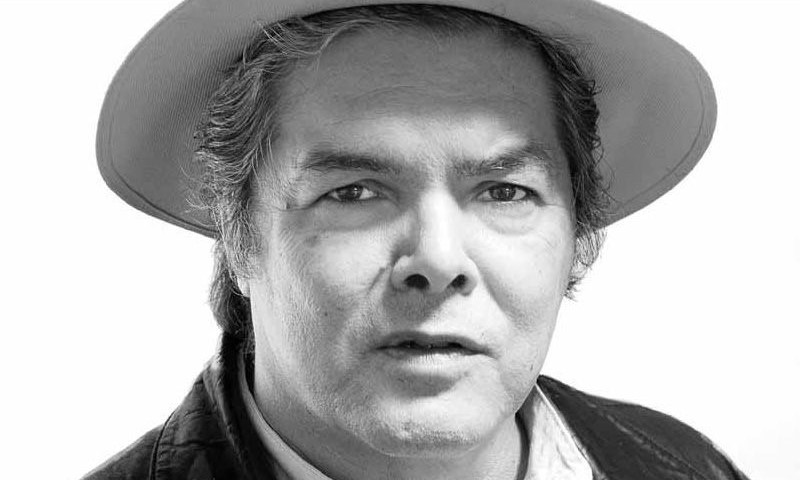 Arturo Márquez Arturo Márquez was born in Alamos, Sonora, Mexico in 1950. He began his musical training in La Puente, California in 1966, later studying piano and music theory at the Conservatory of Music of Mexico and composition at the Taller de Composición of the Institute of Fine Arts of Mexico with such composers as Joaquín Gutiérrez Heras, Hector Quintanar, and Federico Ibarra. He also studied in Paris privately with Jacques Castérède, and at the California Institute of the Arts with Morton Subotnick, Stephen Mosko, Mel Powell, and James Newton. In February 2006, Arturo Márquez received the "Medalla de Oro de Bellas Artes" (Gold Medal of Fine Arts), the highest honor given to artists by Mexico’s Instituto Nacional de Bellas Artes. That evening the concert “El Danzón según Márquez" (The Danzón According to Márquez) was presented at the Palacio de Bellas Artes. The concert included six danzones, all later recorded on a CD of the same name. Márquez has received commissions from the Los Angeles Philharmonic, the Organization of American States, the San Antonio Symphony, the Universidad Metropolitana de Mexico, the Universidad Nacional Autónoma de Mexico (UNAM), Festival Cervantino, Festival del Caribe, Festival de la Ciudad de Mexico, and the Rockefeller Foundation. He has received grants from the Institute of Fine Arts of Mexico, the French Government, and the Fulbright Foundation. In 1994 he received the composition scholarship of Mexico’s Consejo Nacional para la Cultura y las Artes.
Arturo Márquez Arturo Márquez was born in Alamos, Sonora, Mexico in 1950. He began his musical training in La Puente, California in 1966, later studying piano and music theory at the Conservatory of Music of Mexico and composition at the Taller de Composición of the Institute of Fine Arts of Mexico with such composers as Joaquín Gutiérrez Heras, Hector Quintanar, and Federico Ibarra. He also studied in Paris privately with Jacques Castérède, and at the California Institute of the Arts with Morton Subotnick, Stephen Mosko, Mel Powell, and James Newton. In February 2006, Arturo Márquez received the "Medalla de Oro de Bellas Artes" (Gold Medal of Fine Arts), the highest honor given to artists by Mexico’s Instituto Nacional de Bellas Artes. That evening the concert “El Danzón según Márquez" (The Danzón According to Márquez) was presented at the Palacio de Bellas Artes. The concert included six danzones, all later recorded on a CD of the same name. Márquez has received commissions from the Los Angeles Philharmonic, the Organization of American States, the San Antonio Symphony, the Universidad Metropolitana de Mexico, the Universidad Nacional Autónoma de Mexico (UNAM), Festival Cervantino, Festival del Caribe, Festival de la Ciudad de Mexico, and the Rockefeller Foundation. He has received grants from the Institute of Fine Arts of Mexico, the French Government, and the Fulbright Foundation. In 1994 he received the composition scholarship of Mexico’s Consejo Nacional para la Cultura y las Artes.
